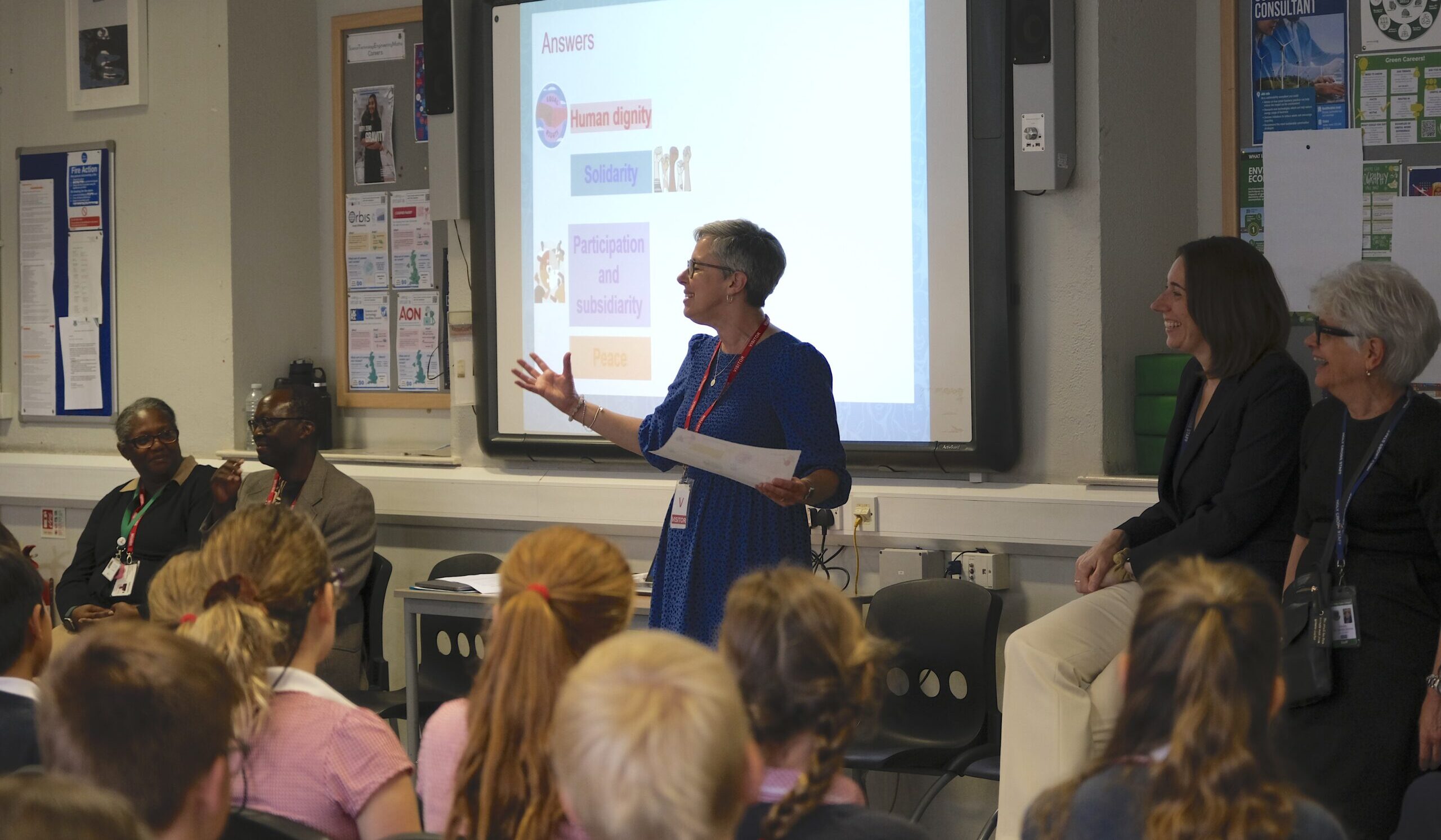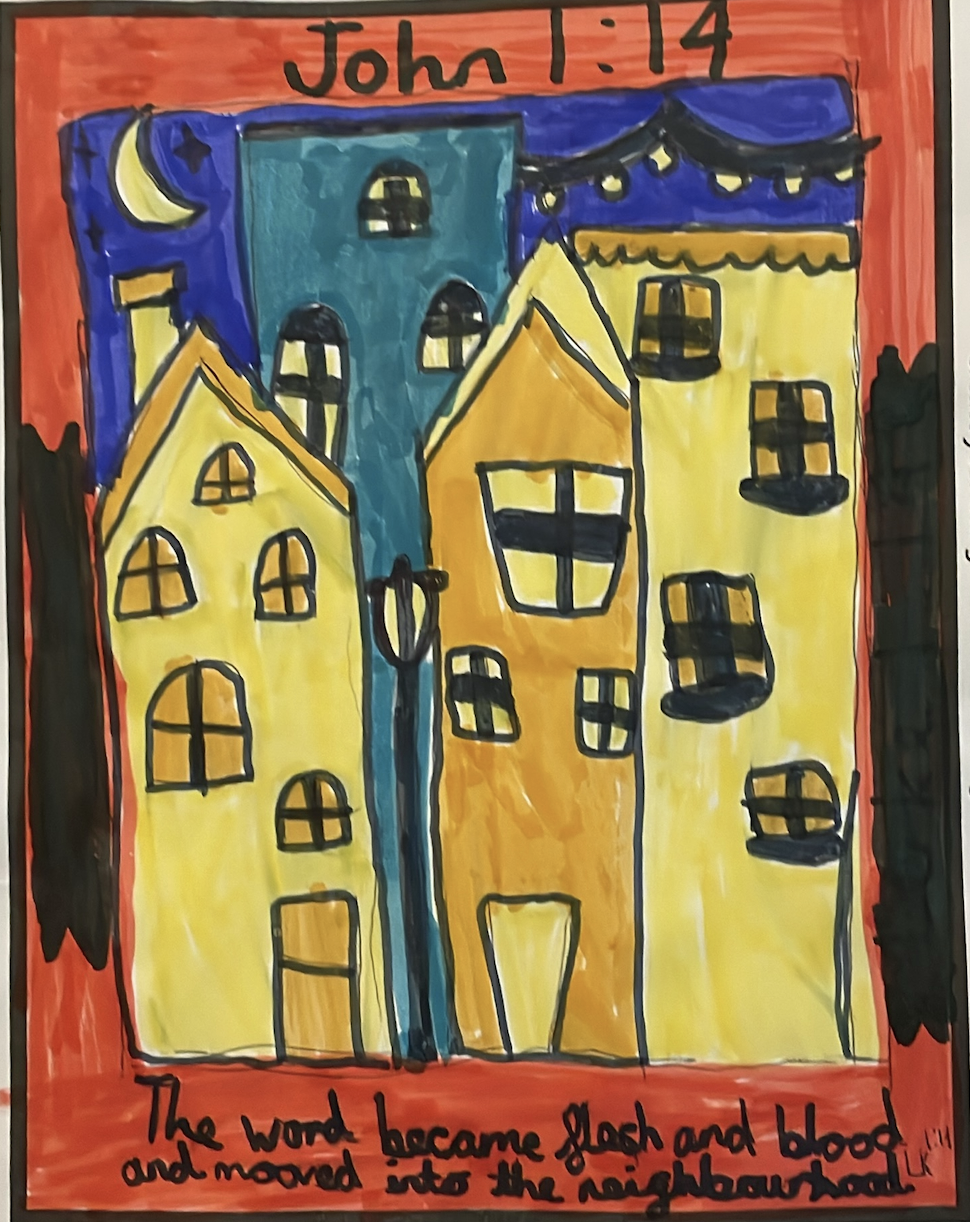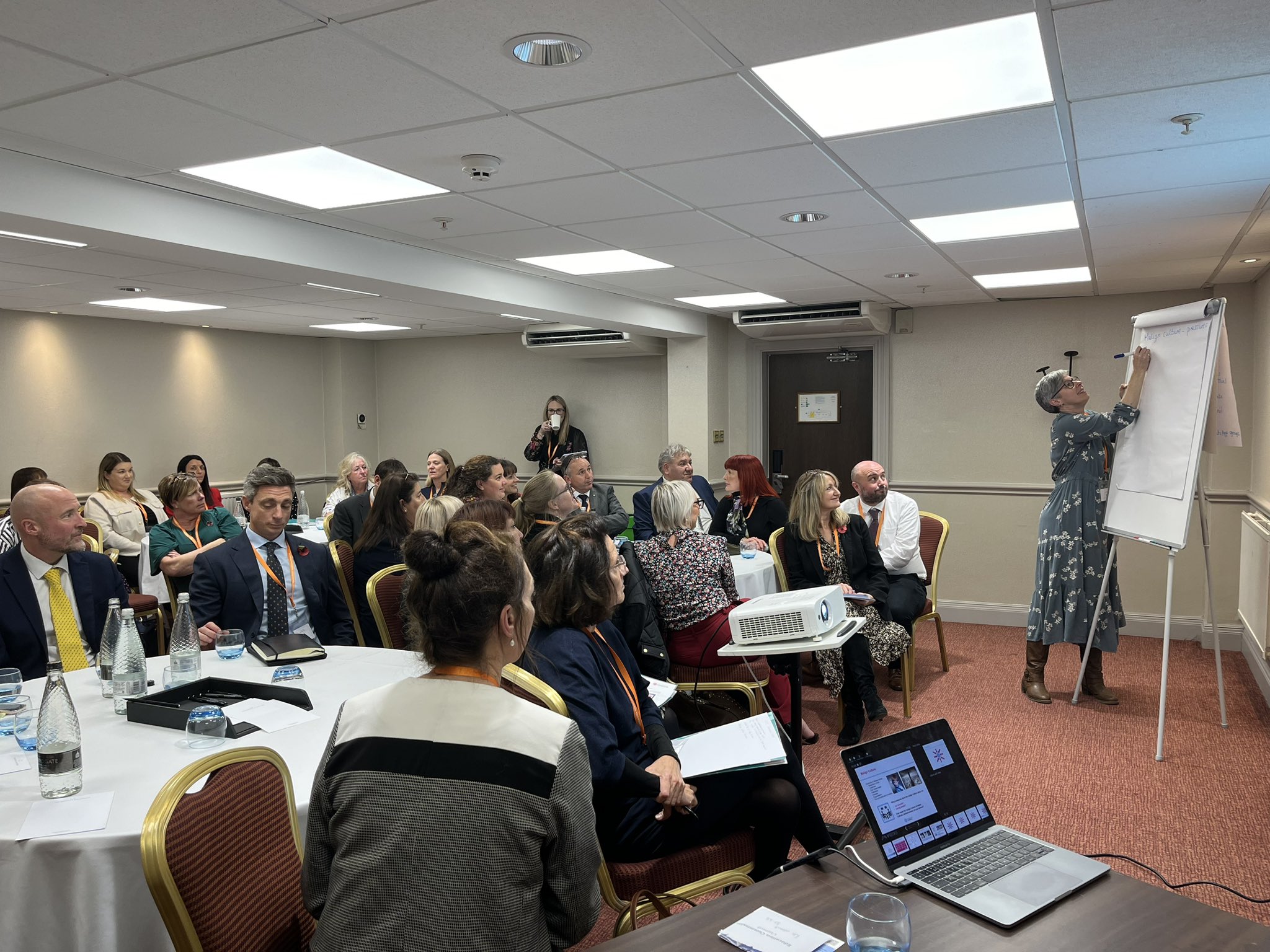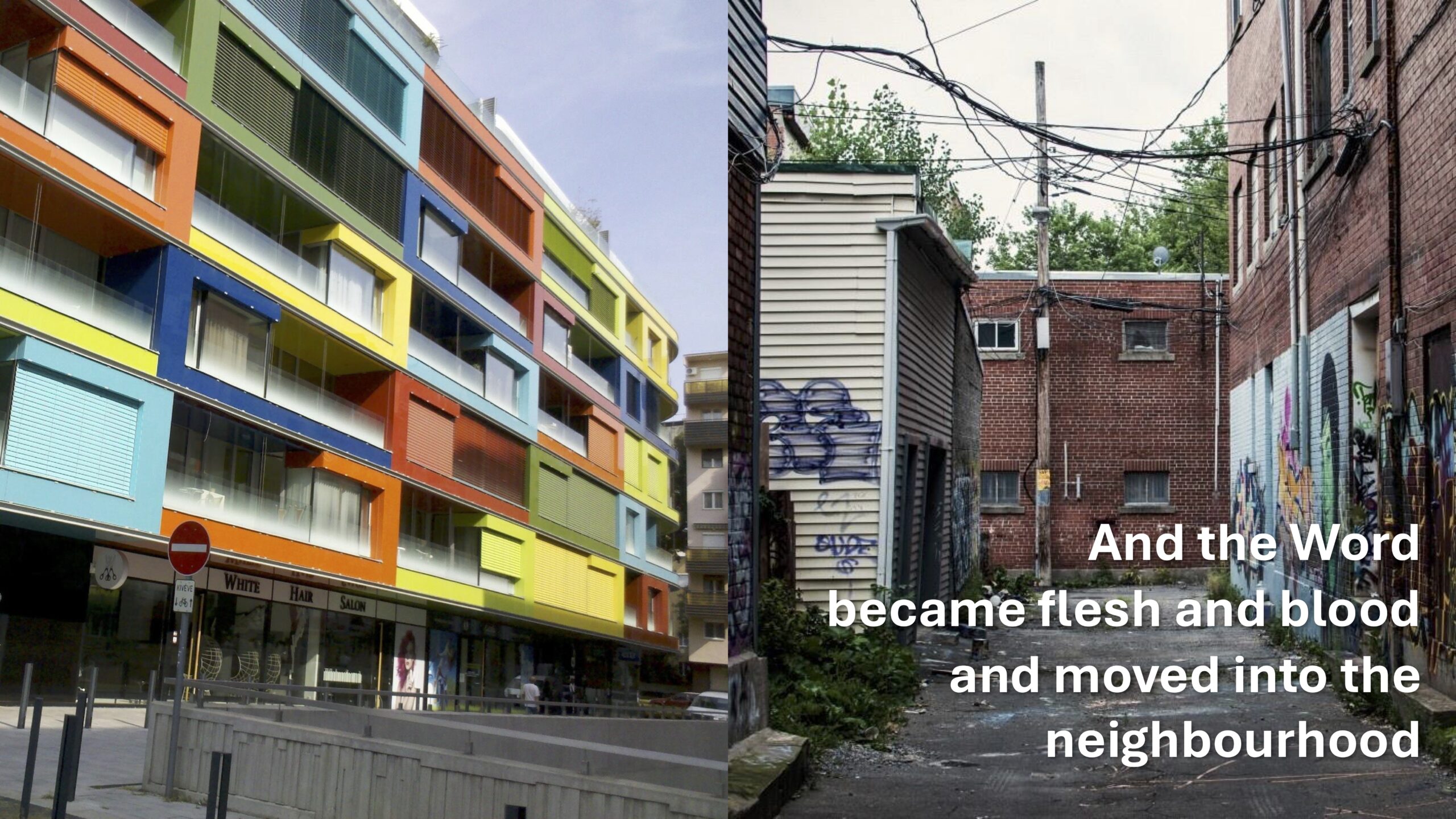News
Explore our news for schools
Explore our news for schools
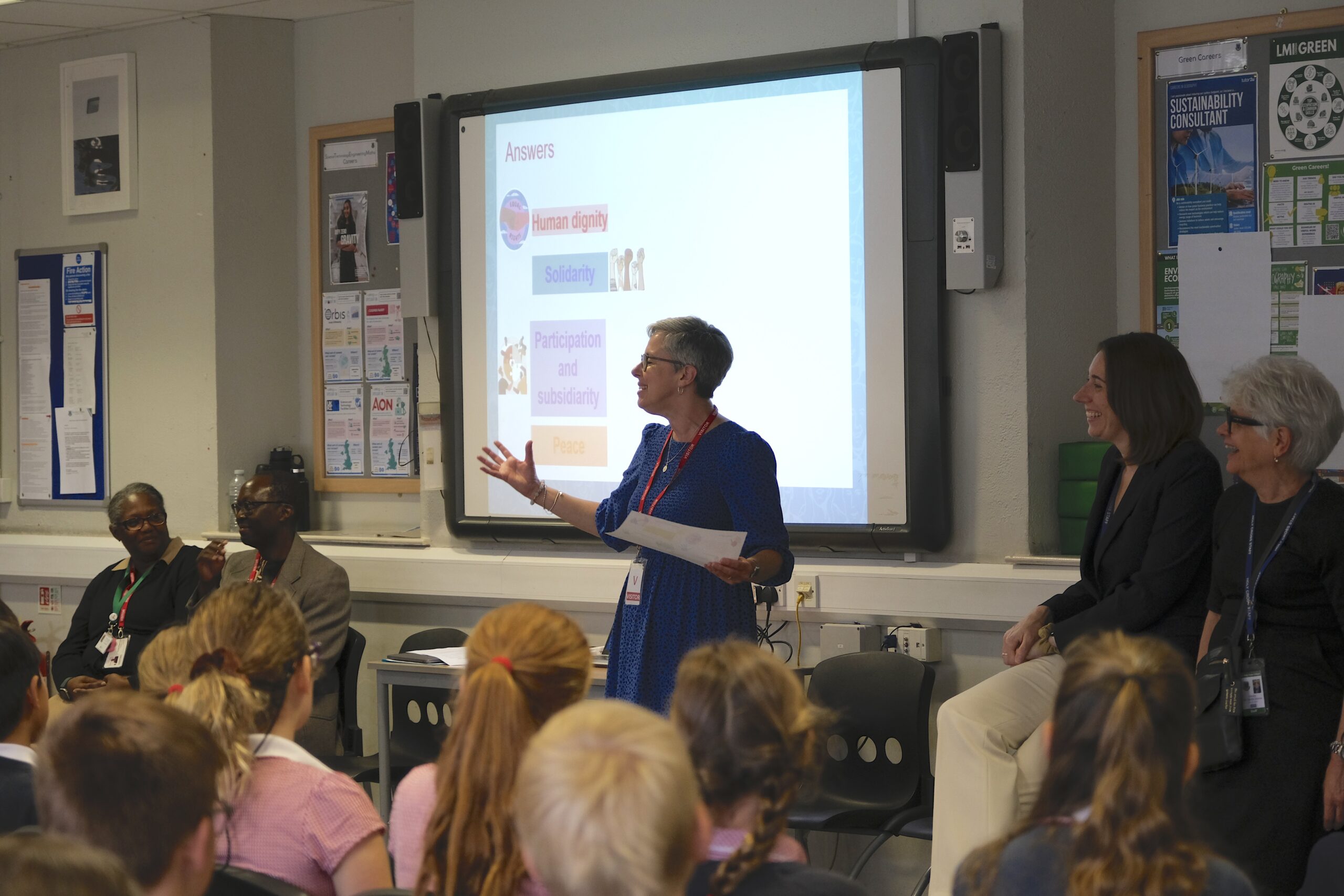
In this Advent update, Jo Stow, our Common Good Schools Project Leader, shares her excitement for the year ahead. She looks forward to launching our brand-new programme for primary schools, unveils the Common Good Schools Bursary Fund, and highlights an inspiring film from our partner school, Alsop High. Jo also previews our upcoming activities and speaking engagements for 2026, and invites you to get involved—whether by joining in or praying for this vital work.
One of the characteristics of the Common Good is reciprocity. As we approach Christmas, we would like to offer you an opportunity to exchange gifts. Our gift to you is a taster of the new Common Good Schools programme for primary schools, and in return we invite you to contribute to the Common Good Schools Bursary Fund to enable schools on low budgets to participate.

In February we will be launching our brand-new Common Good Schools programme for primary schools. This free sample pack contains all materials for teaching week one of the programme. Like what you see and want your primary school to get involved? Register your interest here so that we can plan well for the launch which will take place in Lent 2026.

The Common Good Schools programme brings significant benefits to schools who take part. But right now, many schools are stretched financially. The cost for a secondary school to take part in the programme is £500 in their first year, and £250 per year thereafter. We currently know of four schools who would like to join but do not have the funds available. To enable every school, regardless of resources, to access the transformative benefits of the programme, we have established the Common Good Schools Bursary Fund. Please help us build up this fund and enable schools struggling financially to play an active role in building stronger local communities. You can contribute here

We are delighted to bring some wonderful news from our long term partner Peter Bull at Alsop High School. After the riots of August 2024 in Walton, Alsop High School invited Jimmy Mulville to work with their young people and pupils of Arnot St Mary CE School. As a result, Jimmy, who is Managing Director of Hat Trick Productions, commissioned a production team to produce the powerful and poignant documentary People and Place. It tells an inspiring and hopeful local story, challenging recent negative narratives about Walton. The film spotlights the community’s creativity and resilience, and features Alsop students talking about their aspirations. Read more here. Watch the film here.
We’d love you to join in. Here are some suggestions to consider:
We would appreciate your prayers for our work in the coming months:
Jo Stow, Project Leader, Common Good Schools
T4CG’s Common Good Schools programme equips schools to enable children and young people develop skills around building relationships and taking responsibility. Schools acting as good neighbours in their communities not only strengthen their own students but make a tangible contribution to the shared life of their neighbourhood. Find out more and arrange a conversation with Jo here

Kicking off the new academic year, Jo Stow, Common Good Schools Project Leader, anticipates a dynamic term ahead. She reflects on the success of Phase One of the pilot for our new primary school resource, previewing Phase Two and the upcoming launch in early 2025. Jo also outlines her plans with our partner secondary schools this term and highlights forthcoming speaking engagements across the country. Discover how you can get involved and join in praying for this vital work.
In the last month we’ve had many encouraging conversations and we’re excited. It’s been great to speak to leaders from a diocese and two Multi Academy Trusts who are interested in joining Common Good Schools as well as a Common Good Schools partner academy who would like more of their Trust’s schools to join. I’m also enjoying a generative conversation with a teacher and an author keen to help us develop a potential new KS1 resource next year.
In Common Good Schools KS2 lessons and assemblies children learned about reciprocal relationships and recognise the dignity and worth of each person. Participating schools were invited to engage with their local community in a way that builds mutuality. We’re incredibly appreciative of staff who gave us feedback and shared stories and photographs.
Year 6 children from Ss Peter and Paul’s Catholic Primary, Yeadon, built relationships with a local Friendship Group through shared activities. These included pupils reading to visitors, sharing a chair aerobics class, playing board games, line dancing, talks from fire fighters, librarians, police and dogs for the blind. The Friendship group was invited to join family members at an afternoon tea and for the school production.
Class teacher Angela Filarowski said, “The children have really enjoyed being able to join the Friendship Group. They talked to the rest of KS2 about it and have really instilled enthusiasm in them for working in the community and living out Jesus’ mission to help those who in many different ways need their support.”
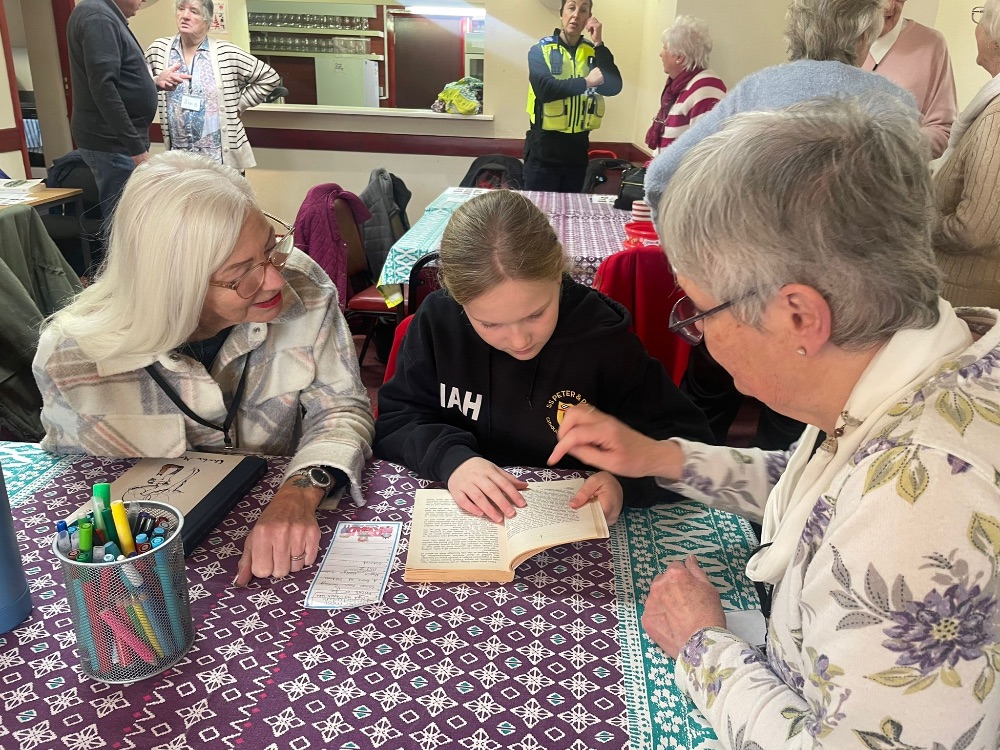
September – October
November
December
2026
We would appreciate your prayers this autumn for our work in the coming months:
Jo Stow, Project Leader, Common Good Schools
T4CG’s Common Good Schools programme equips schools to enable children and young people develop skills around building relationships and taking responsibility. Schools acting as good neighbours in their communities not only strengthen their own students but make a tangible contribution to the shared life of their neighbourhood. Find out more and arrange a conversation with Jo here
Photographs: thanks to children of Ss Peter and Paul Catholic Primary, Yeadon and community group Friends of Ss Peter and Paul
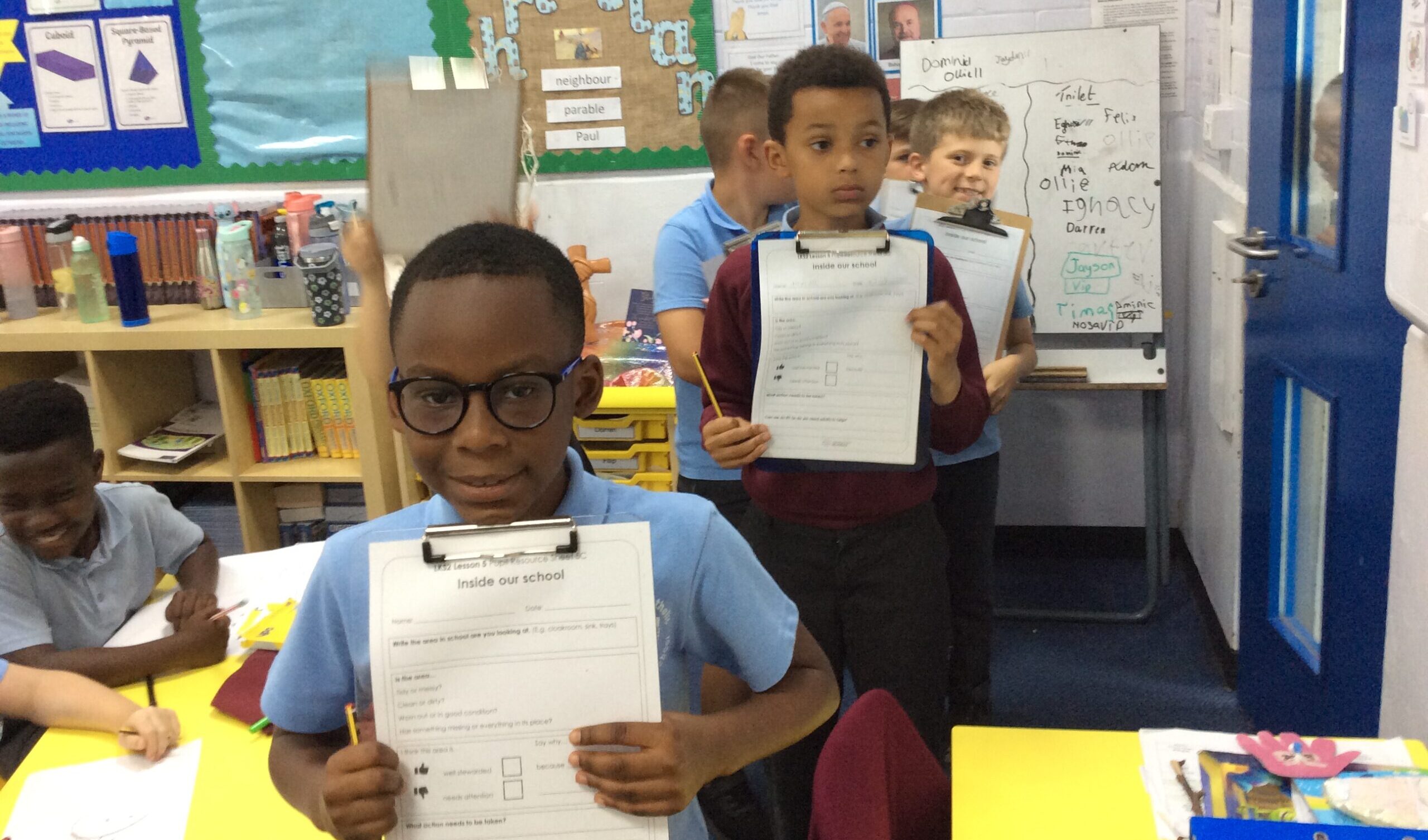
As this academic year draws to a close, Jo Stow Project Leader for Common Good Schools celebrates highlights from a busy term, including the successful pilot of a new six week common good resource for primary schools, a visit from our Italian partners to our Liverpool partners, our latest new secondary school, contributions to conferences and a pilgrimage. Jo looks ahead to a packed schedule in the autumn, meeting groups of head teachers and delivering phase two of the primary pilot.
We have been piloting a new resource across the summer term. In response to many requests, I have developed a new six-week Common Good programme for 7-11 year olds to complement our resource for 11-16 year olds. Children and teachers from eight primary schools from Yorkshire to Kent took part. Feedback has been very encouraging. Comments demonstrate that the programme:
“… is joyful, interactive, relevant, thought-provoking. It should be a resource that every school should consider.” Year 5 teacher, Chorley, Lancs
And that it
“… allows for a designated teaching time for Catholic Social Teaching. It focuses the children to enable them to become aware of the terminology, helping them think about their own actions within school and their community.” Year 3 teacher, Leeds
A further 14 schools across the country will join phase 2 of the pilot in September. The new resource will be launched in early 2026. Sign up to the Common Good Schools monthly newsletter for details of pre-order dates.
In early July, we welcomed partners from the Diocese of Modena-Nonantola in northern Italy as Franca Gambari brought a group of young people, teachers and diocesan staff on a visit to Liverpool. Having followed the ten-week Common Good Schools programme in Italian over a year, the group had become familiar with common good principles.
I and the Italian group were invited to join with students from our partner school, the Academy of St Francis of Assisi, on a Reflective Walk in a local park. Led by School Chaplain Miles Rimmer-Tagoe, the young people mingled and answered questions based on Common Good principles as they walked. From time to time, Miles asked everyone to stop and share their conversation with the whole group. All involved said the walk had helped them learn about the local area and reflect on their responsibility to build the common good wherever they were from.
Later that day, hosted by School Chaplain Kasia Boydell, the Italian group visited our partner school Hope Academy in Newton-le-Willows to join in classroom activities. Both schools are part of All Saints Multi Academy Trust, whose vision is inspired by the ecumenical partnership of bishops Sheppard and Worlock in Liverpool a generation ago.
Our newest partner is also from Liverpool: Broughton Hall. It was a joy to meet Lay Chaplain Phil Johnson in June for induction training, covering community engagement in the surrounding streets of the school in the West Derby area of the city. I was delighted to welcome Phil and colleague Colleen Downham to meet Common Good Schools partners online for a CPD session in Community Engagement. I look forward to working with them in the coming academic year.
I am increasingly being invited to speak and provide Common Good Schools workshops for conferences. My role is currently limited to two days per week, so fitting this into my schedule is a challenge. However, I love doing it and was delighted to contribute to the ‘Voices for Social Justice’ conference at Holy Cross School, New Malden. This large conference invited staff and students from many other local schools too, both primary and secondary. My workshops, for Years 5, 6, 7 and 8 students, focused on developing listening skills for the purpose of building common good and solidarity in the neighbourhood. The young people participated brilliantly and it was an extra benefit to engage the able assistance of Holy Cross sixth formers. It was also good to meet up with friends of Common Good Schools, including Susan Elderfield from the Archdiocese of Southwark, and Mugeni Sumba from the Oscar Romero Awards Trust.
Our Founder and Director Jenny Sinclair was invited to speak to VI formers participating in a Gaudete Trust pilgrimage to Liverpool. Coming from schools across the northwest, the young people were led by Helen Jones on a walking pilgrimage on the theme of hope, recalling not only the city’s troubled history but its spiritual history and its resilience in overcoming injustice. The young people came from a broad range of backgrounds.
Jenny talked about her own story of vocation, the history of the city, its troubles, how it survived a succession of tragic events, and how the Sheppard Worlock partnership helped the city overcome sectarianism. Jenny also talked about Catholic Social Teaching, the common good, the role of the Church and the individual Christian in civic and spiritual renewal in our own troubled times. The VI formers asked probing, thoughtful questions – about vocation, the Holy Spirit, division and social unrest. Realistic, insightful and hopeful, this was an impressive group. The Gaudete Trust is a charity that supports a family of schools and colleges animated by the distinctive charisms of the founding Religious Orders.
We would appreciate your prayers this summer for our work in the coming months:
Jo Stow is Project Leader, Common Good Schools
T4CG’s Common Good Schools programme equips schools to enable children and young people develop skills around building relationships and taking responsibility. Schools acting as good neighbours in their communities not only strengthen their own students but make a tangible contribution to the shared life of their neighbourhood. Find out more and arrange a conversation with Jo here
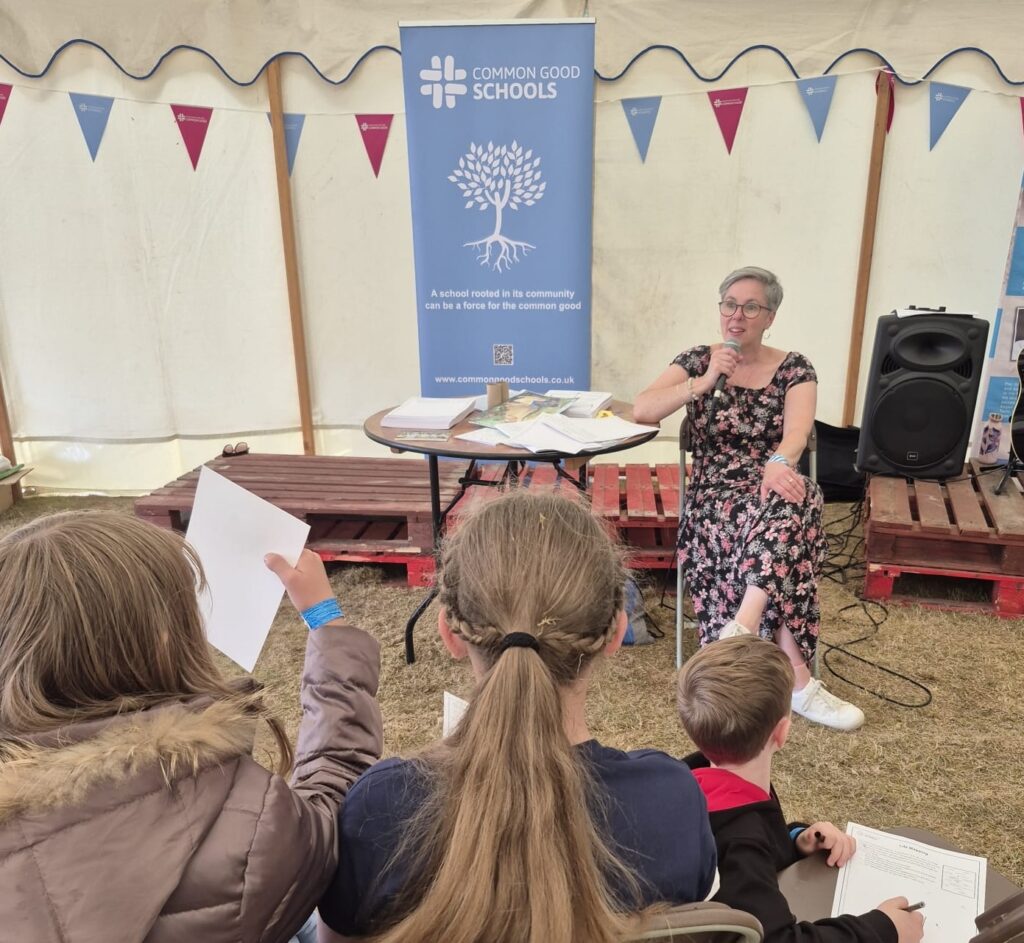
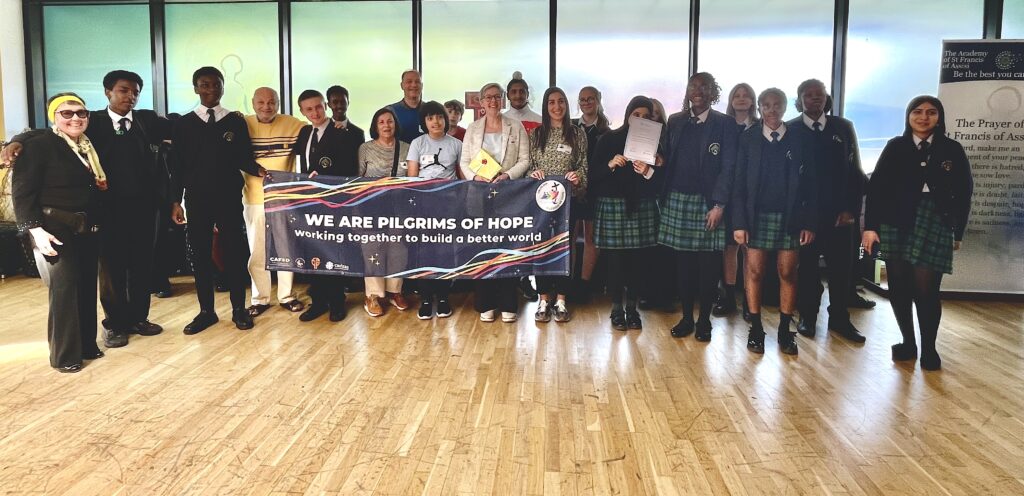
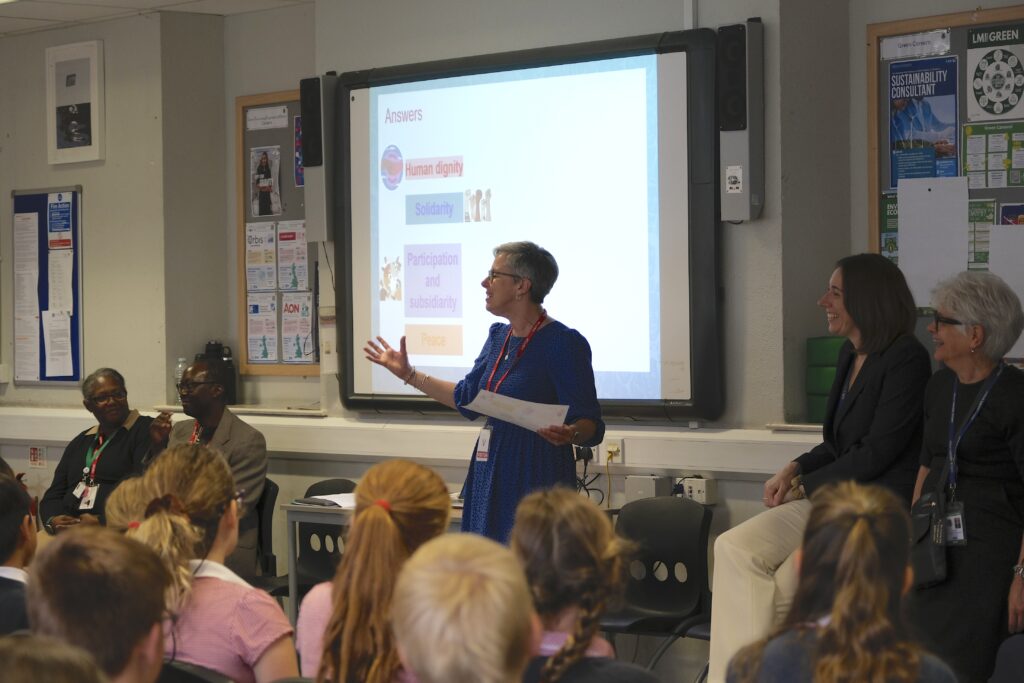
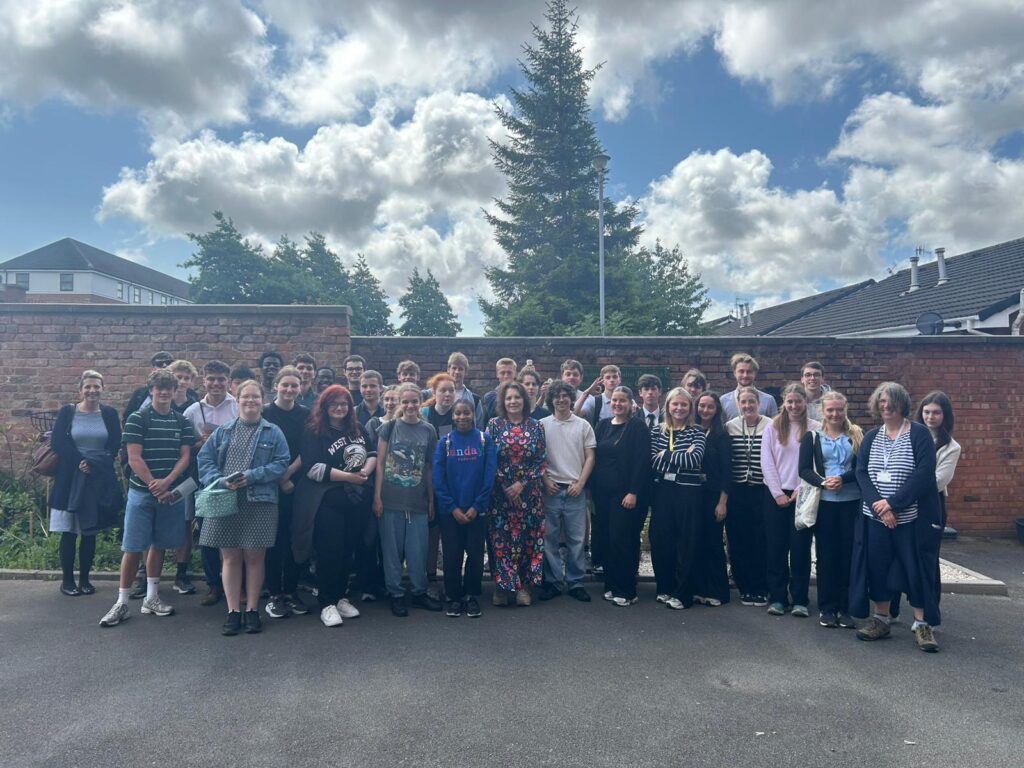
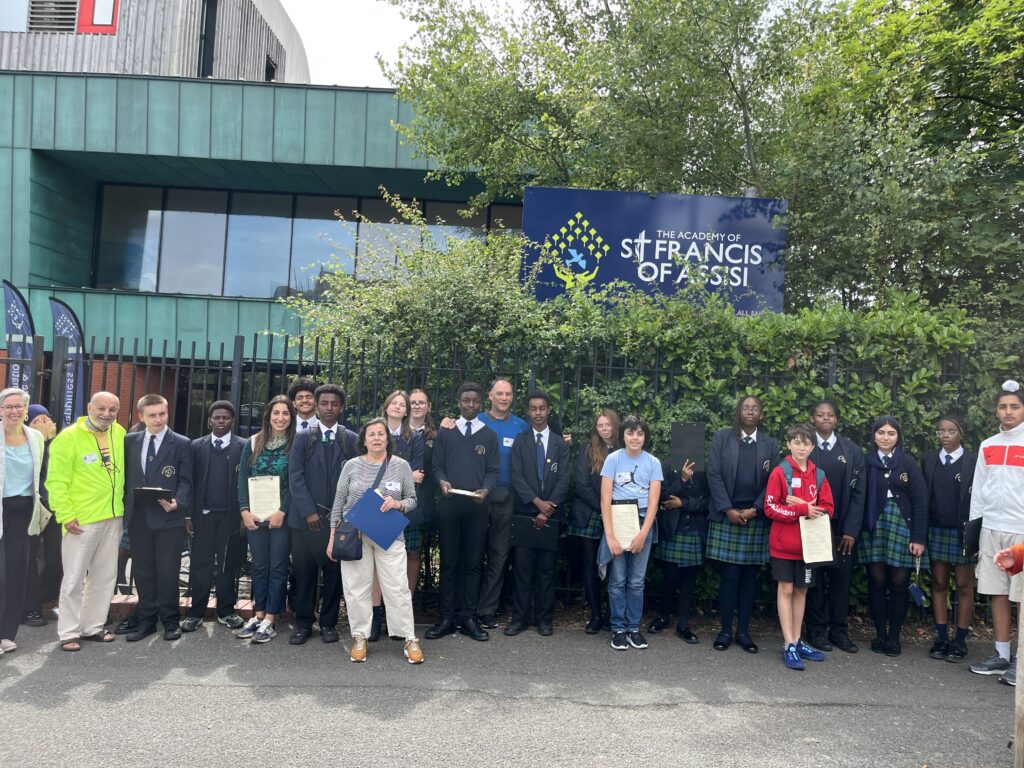
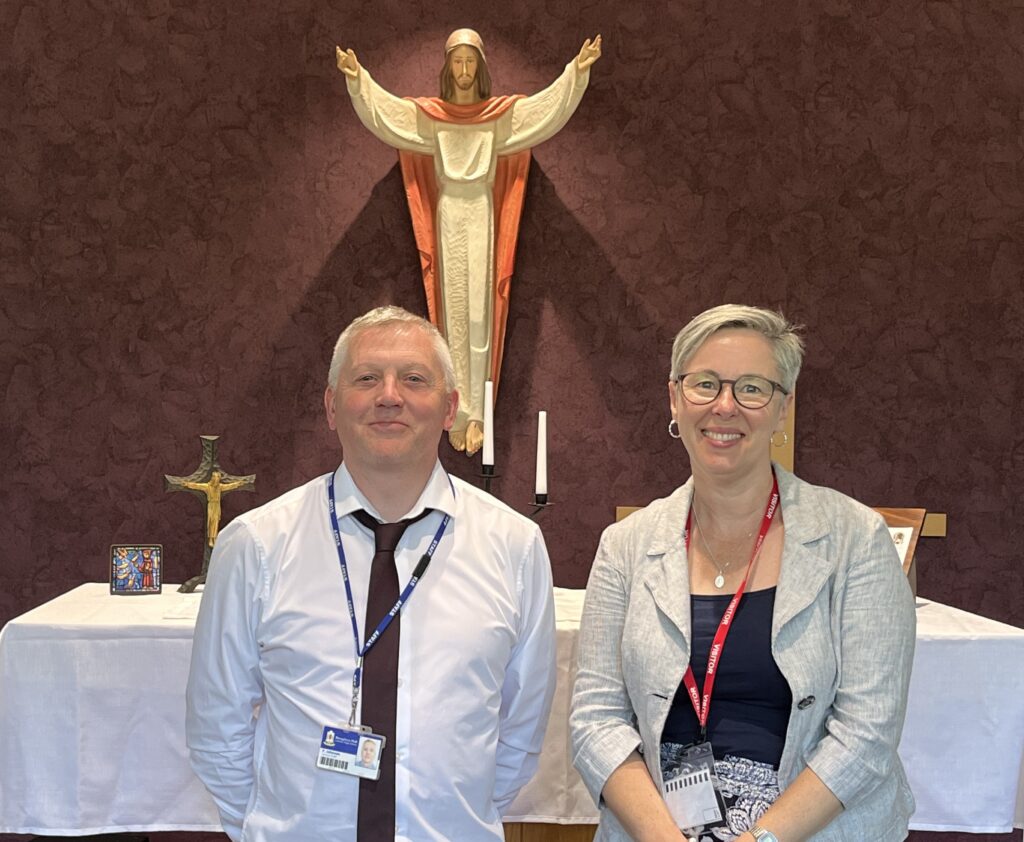

In our work with children and young people, we invite them to reflect on a question. This question is implicit throughout our KS2 and KS3/4 programmes. And it’s an important one. Here, Jo Stow asks ‘Am I a consumer, or a neighbour?’
In the west, our neoliberal culture evangelises young people to be consumers – of social media, of products and of each other. Data from 2024 shows that a quarter of 3-4 year olds owned a smartphone, and that nine in 10 children own a mobile phone by the time they reach the age of 11.
Our children are immersed in an online world that grooms them to be consumers through constant advertising, but also through increasingly harmful content. According to a report for the Children’s Commissioner for England, a quarter of 16-21-year-olds first saw pornography on the internet while still at primary school. By the age of 13, 50% had been exposed, with three in five secondary school-aged children having been contacted online in ways that made them feel uncomfortable.
This, along with an over emphasis on rights rather than responsibilities, breeds a culture that induces fear, confusion and profound unhappiness as evidenced by the loneliness and poor mental health of many children and teens today. Our children and young people were not made for this.
The realities can seem overwhelming and can appear insurmountable. But in contrast to the self-obsessed worldview of this individualistic culture, Pentecost tells a radically different story, a story of self-giving.
The action of the Holy Spirit initiated a revolution. The anxious apostles received the Holy Spirit and were filled with joy and a fearless zeal to proclaim the risen Christ. The doors of self-protection were flung open and the people in the surrounding streets were drawn to this countercultural message of hope. Peter issued an invitation for people to repent and be baptised. Previously hidden, the apostles literally gave themselves away, and the church grew.
So, what has the Common Good got to do with the Spirit-filled proclamation of the Gospel? In Acts, immediately after reports that “three thousand were added to their number” (Acts 2:41) we observe that the shared life of the new Christian community was so distinctive that it drew people’s curiosity.
The generosity of this community included material needs being met, breaking bread in each other’s homes and living alongside each other. There was deep connection, participation and reciprocity between them. When it was discovered that people were being left out of the daily distribution of food (Acts 6:1-7), action was taken, with seven deacons known to be full of the spirit and wisdom, appointed for this task.
This is what being a neighbour rather than a consumer looks like. Our young people need help to resist the toxic pressures of this culture of isolation and learn how to build mutual responsibility and civic friendship. We must shift our focus to who is around us. Simply noticing is the first step.
In our work with Common Good Schools, we ask our partner schools to identify who is in the neighbourhood. For Christian teachers and students, this includes an attentiveness to see where the Holy Spirit is already at work so that they can join in. There will already be people and groups that they know and relate to, and some where a meaningful relationship is yet to be established. The next steps are connection and conversation. As relationships develop, young people will get to know people they would not ordinarily meet.
But will these acts of neighbourliness facilitate an encounter with Christ? Sometimes there is an assumption that evangelistic proclamation of the gospel and “social action” are separate activities, even as different departments of church life. But when the two are in harmony, healthy fruit grows.
Matt belongs to a small Baptist church in Leeds that my husband pastors. Matt and his wife Chrissy (not their real names) live a stone’s throw from the church. The story of how he came to be part of the worshipping community is instructive. A neighbour had invited Chrissy along to the Friday morning ‘Drop-In’ for a bacon sandwich. There, she encountered a welcoming community of parents with young children, local elderly residents, immediate neighbours and church members. She enjoyed the friendship.
Weeks later, Matt came too. He found people with common interests and connections. This led to the couple attending a friend’s baptism service. And the rest is history. For Matt, it wasn’t just a case of belonging. He had felt a desire for God emerging as he watch his wife go off to Drop-In. With a tear in his eye, he conveyed what it meant to develop a relationship with God, and to able to contribute to the life of the church.
If we don’t operate as good neighbours, getting to know people and inviting them to contribute, we are not only limiting their opportunities to encounter the love of Christ, we are also missing out on what the Holy Spirit is doing in our area in his work of renewal. This applies not only to churches but also to church schools.
For Matt, it was important that he could make a contribution, but for our young people, taking responsibility and contributing doesn’t always come naturally.
In my spare time, I recently helped to run an Alpha course. I noticed that at first, the older participants attended only if they could offer something. They cooked, baked, or welcomed. Younger participants in their teens and twenties enjoyed what was laid on but didn’t proactively offer help, although were happy to if asked. However, as the course went on things changed.
Through time together over meals, conversation, laughter and deep sharing, intergenerational friendships formed, and the young people naturally began to offer to contribute. They were starting to learn, slowly, what it is like to give as well as receive.
Maybe being raised as a consumer steals young people’s confidence in having something important to contribute? Such a solipsistic life risks isolation and lack of meaning, making them vulnerable to manipulation.
Pentecost calls us to a different story. Building local relationships through the power of the Holy Spirit enables our young people to experience first-hand the fundamental difference between being a consumer and a neighbour. Strengthening us for an uncertain future, the Spirit is drawing us into a countercultural movement of mutuality and joy.
Jo Stow is Project Leader, Common Good Schools
T4CG’s Common Good Schools programme equips schools to enable children and young people develop skills around building relationships and taking responsibility. Schools acting as good neighbours in their communities not only strengthen their own students but make a tangible contribution to the shared life of their neighbourhood. Find out more and arrange a conversation with Jo here
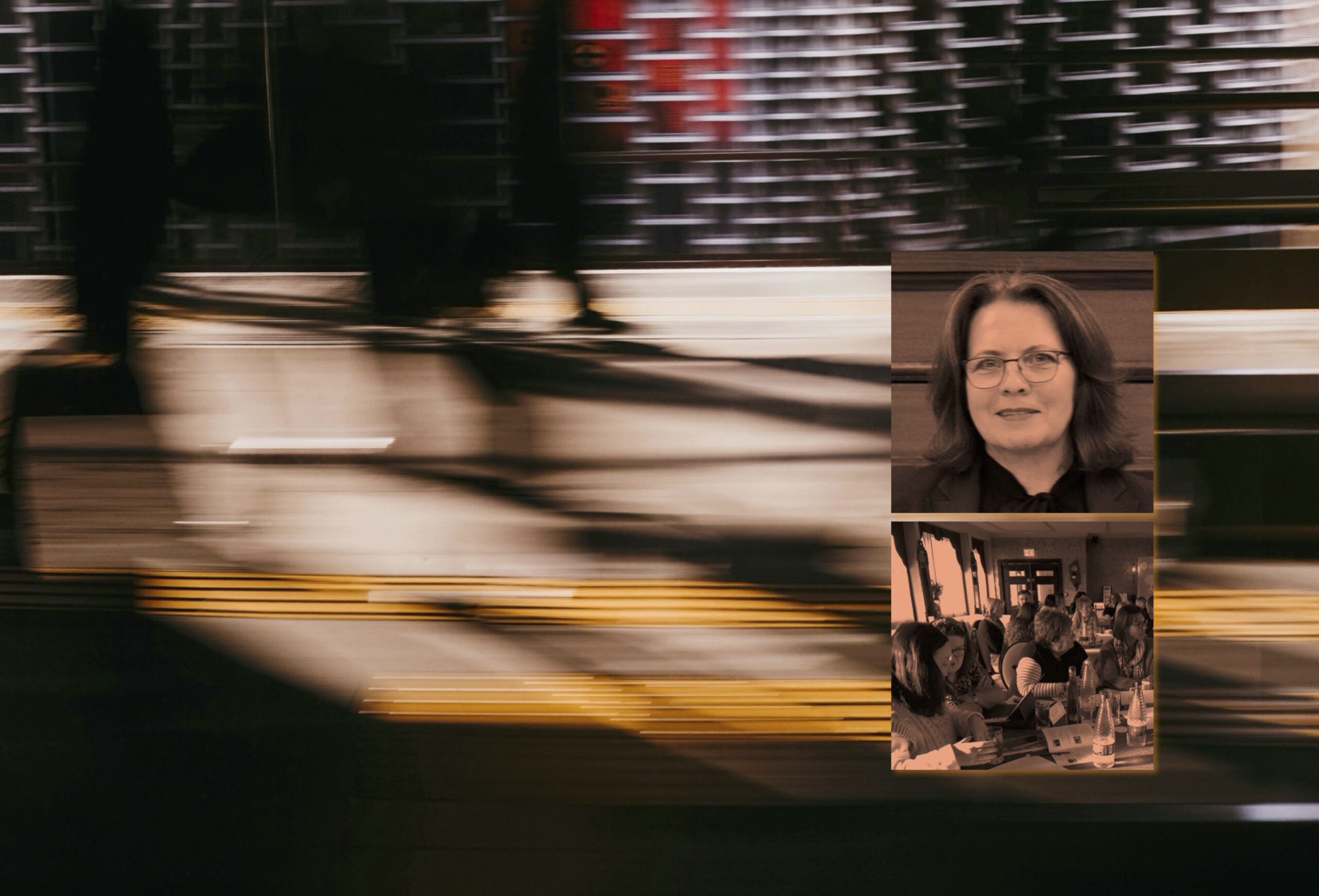
Our societies are confronting multiple crises within a period of epochal change. But as the People of God, we are not gloomy. Always hopeful, we are called to participate in spiritual and civic renewal. To address this, Jenny Sinclair leads a two part session drawing on the tradition of Catholic social thought. First, she invites us to read the signs of the times and understand what is going on, in cultural, political and spiritual terms. Second, she invites us to explore how we will respond, and our calling to the common good. Examining the symptoms of our cultural malaise and identifying the root cause, she introduces and unpacks the practice of the common good as the antidote, proposing intentional rebuilding of relationships at all levels.
This talk was originally given as part of a training session for Head Teachers as part of EducareM’s National School of Formation, at Coombe Abbey on 14 November 2024.
DOWNLOAD Jenny’s text HERE
This was included in the Christ the King 2024 edition of the T4CG Newsletter. If you found it meaningful, you can explore more content like it by subscribing to Together for the Common Good on Substack.
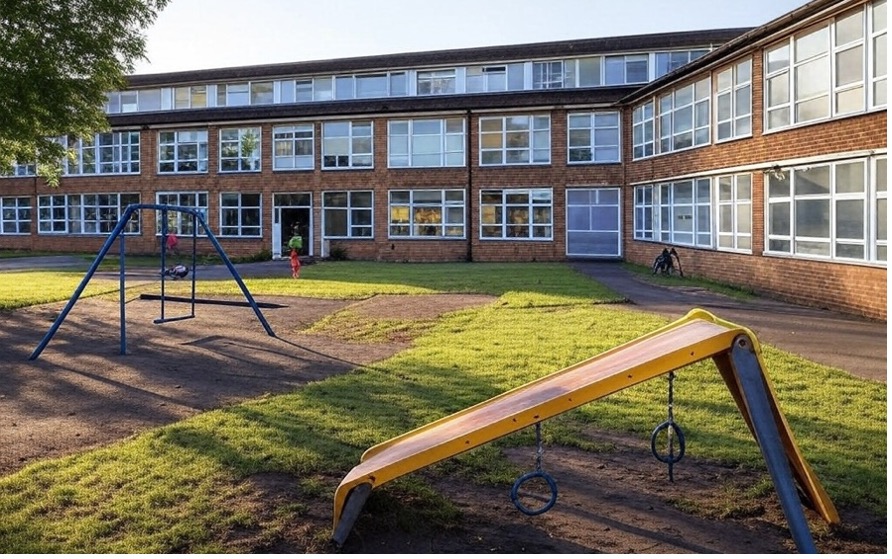
As we enter the season of Lent, our Common Good Schools Project Leader, Jo Stow, encourages schools to take a more relational approach to charity and to notice hidden poverty in the classroom.
Scroll down for our free Lent resource for secondary schools.
Last week, I joined a friend who is a teacher at an after-school club. The children gather, enjoy snacks and go off to participate in the session’s activities. After snack time, I noticed that one boy, Michael (not his real name) hung back from the activities and was eating what was left over of the snacks. Michael is eleven. His teacher adds quietly, “he comes for the free food.”
This time of Lent is a busy one in church schools. Charities will be supported. Wonderfully creative, sponsored events will take place. Children and staff will be working hard to “give alms to the poor.” Perhaps donations will be made to local food banks. Many will be fasting – a spiritual discipline that points us to God by reminding us how it feels to be hungry, and that as well as being hungry for food, we hunger for many things – things that are good for us and things that are not. Fasting is also meant to draw our attention to the poor. But who are “the poor?”
The data
For a boy like Michael, fasting is not a choice. And his story is by no means isolated: in the UK, 14.3 million people are living in poverty, of whom 4.3 million are children – that is three in every ten children.[1] The percentage of children on Free School Meals (FSM) gives some perspective: in 2023/24, 24.6% of pupils were eligible, up from 23.8% in 2022. This represents 2.1 million pupils.[2]
Among our partner schools, the FSM percentage ranges from 10.2% in a school in the suburbs to 56.3% in a school in an inner-city location.
At an education conference I recently attended, data was shared about child poverty globally. A teacher spoke up. He said, “students at my school are part of that statistic.” I went to chat to him over lunch. He spoke about the stigma of poverty in schools. “These children become invisible because of the shame they feel. Somehow, they feel that poverty must be their own fault.” I was struck that stigma is still an issue after decades of campaigning on child poverty. These children are effectively hidden in plain sight. We have the data, but part of the story is missing.
Where are the poor?
When it comes to a school’s charitable efforts, it is worth reflecting on where the poor people we are supporting are located, where they live; nearby, in another district, or perhaps overseas.
Lately I’ve been doing some research among primary school teachers. It became evident that there are plenty of resources available to help school children engage with issues of global poverty, but there is a considerable lack when it comes to the local. Given this, what could we be missing? Perhaps our approach needs to pay closer attention to context. And when we support a local charity, we should be aware that some of those in need may be under our own roof.
Them and us
Let’s consider the full meaning of almsgiving. Traditionally, giving alms has been described as “a witness to fraternal charity”[3], indicating that it is about more than giving money or services. Christian love particularly involves the gift of time and personal connection. This is how the bonds of fraternity are formed.
Pope Francis is saying repeatedly calling for a culture of encounter, and not to allow charity to be a means of keeping poor people at arm’s length.[4]
In a busy school, “almsgiving” can sometimes become reductive and conflated with fundraising. What might this feel like for Michael? His ability to contribute is compromised, and his family’s situation can become a source of shame. He is faced with the confusion of being invisible in his own classroom.
If we fail to embrace the true spirit of almsgiving, we can inadvertently fall into a “them and us” dynamic. If we do not recognise who is under our roof, we create a false division between those who can afford to give and those who can’t, and risk removing agency of someone who is poor.
In its welfarist, reductive form, where charity is understood as volunteers doing charity for poor people (whether through fundraising or by delivering a service), the possibilities of true encounter are small. The transactional dynamic between active giver and passive recipient does not build fraternity, one of the signs of Christian love.
If our almsgiving is in our local area this opens up opportunities to go beyond the welfarist approach. A mark of the common good is reciprocity. This requires true relationship, where there is give and take, and the dignity of the person is upheld. Simply giving money to the poor may help temporarily but it does not uphold a person’s dignity – it is as if he or she has nothing to contribute.
Solidarity and Subsidiarity
Earlier this week a colleague shared with me some children’s responses to the question “do you think God cares about poverty?” Most assumed that God does care, and that kindness is the right response. But rather a lot of them took the view that poverty is a matter of fate or the result of poor choices. There was little awareness of the injustice of an economic model that relies on low wage, insecure jobs.
The Christian vision of justice derives from the Jewish tradition of right relationship, in which the response to poverty must be relational. We do not stand in solidarity with the poor by giving a handout and walking away.
The principle of Solidarity sees human beings as social beings designed to be interconnected by relationships of mutual concern and support. It is a determination to work for the good of all and of each person – so that in some way, all are responsible for all.
This means going through something with someone, giving time and building a relationship, helping them to get back on their feet. The Good Samaritan not only helped the man by the road and paid for his care; he came back the next day. A relationship was formed.
Charity that is truly Christian is not a one-way street: the giver must be open to receive, and the receiver must be able to give. This ensures a mutuality that goes beyond transaction. Everyone has something to contribute.
In Catholic Social Teaching Solidarity is always to be balanced with the principle of Subsidiarity. Subsidiarity holds that responsibility is taken at the most appropriate level and decisions should always be taken closest to those they effect – and, that a central authority should only do tasks which cannot be performed at a more local level. In this way, everyone fulfils their unique roles, and the integrity and agency of each person is upheld.
If not donations, what might this look like?
We often ask our partner schools ‘how can you make what you are already doing more common good?’ Small tweaks are where to begin. For example, fundraising should always be accompanied by something relational and reciprocal. Whatever your Lent action is, it should build relationships.
If you are open to a radical new way of almsgiving, consider these suggestions:
A shared meal hosted by a local partner with a good kitchen, served by school children (both those on FSMs and those who are not), involving parents and staff, and where members of the community are invited too. Costs could be supported by a pay-as-you-feel or pay-it- forward model.
A listening project where children research what sorts of foods are available locally – identifying whether fresh, healthy food (fruit, veg, meat and fish) is priced too high, finding out about the range of local suppliers including supermarkets, community food sources, co-ops, allotments and local farming produce.
What about Michael?
Michael, the boy who stays for the leftover snacks is not just hungry, he is isolated. He feels shame about having to keep his situation private and sometimes school charitable initiatives are confusing and embarrassing for him. Our approach to poor children in our schools needs to change. Beyond FSM statistics, Michael and others like him are people who deserve solidarity, friendship and accompaniment. Michael has important gifts to contribute within his school and community – precisely because of his situation.
This isolation may mean that Michael’s family and other families in similar circumstances are locked out of solidarity with the wider community. There is often a class divide here which must be bridged. Every school and church should be looking for creative ways to build relationships, where affluent and poor families can stand find common cause and stand in solidarity face to face. This is powerful. Ignorance can turn to empathy; shame can turn to confidence. There are mutual personal benefits as well as community gains.
Jo Stow, Common Good Schools Project Leader
***
Common Good Schools offers a programme of lessons, assemblies and guidance for community engagement. This equips staff and students to put reciprocal relationships at the heart of all they do, for the flourishing of the whole community. We offer ongoing support and CPD to participating teachers, chaplains and staff running the programme in their schools.
During Lent, we invite secondary school staff to download our free resource A Common Good Lent
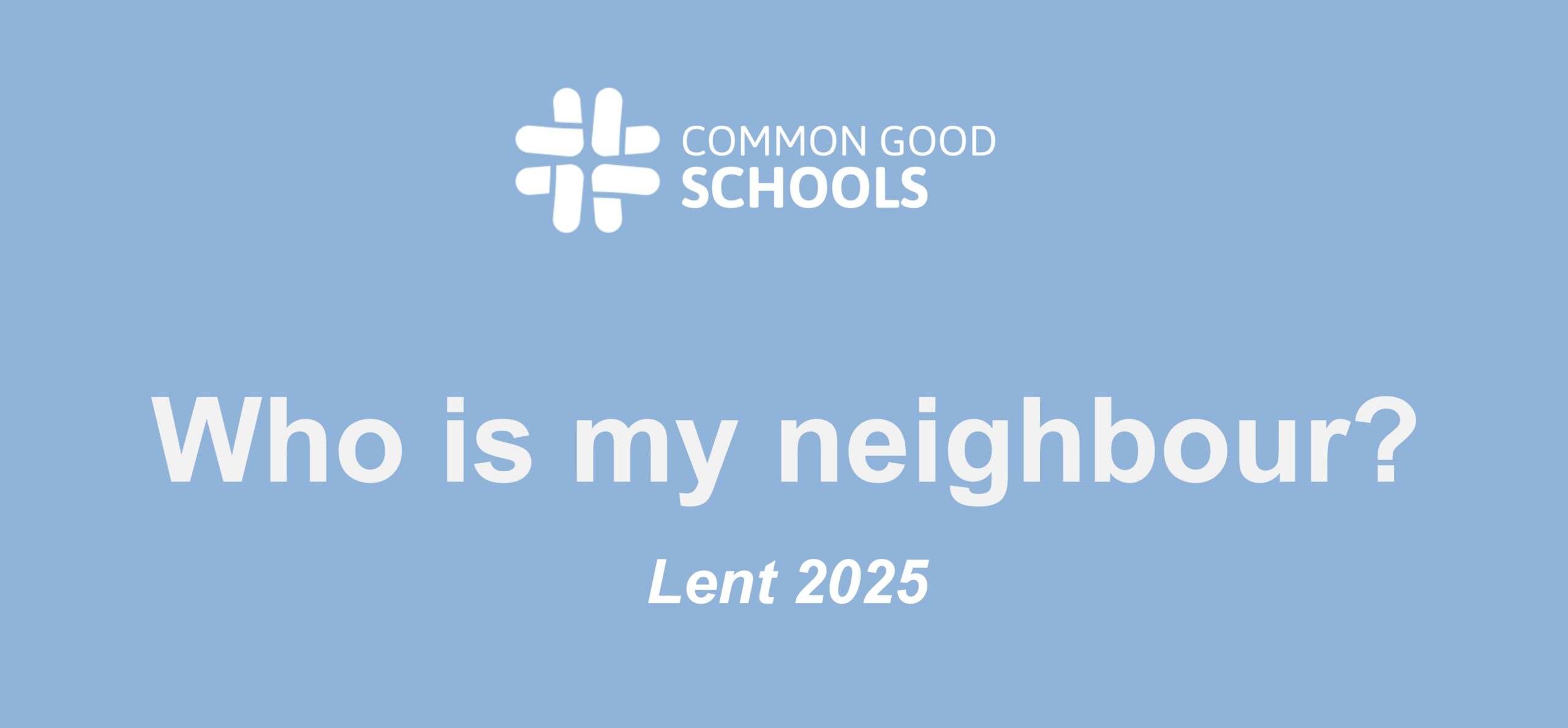
NOTES
[1] https://www.jrf.org.uk/uk-poverty-2025-the-essential-guide-to-understanding-poverty-in-the-uk
[2] https://explore-education-statistics.service.gov.uk/find-statistics/school-pupils-and-their-characteristics
[3] Catechism of the Catholic Church, No. 2462).
[4] Pope Francis, World Day of the Poor Letter 2022 (#7)
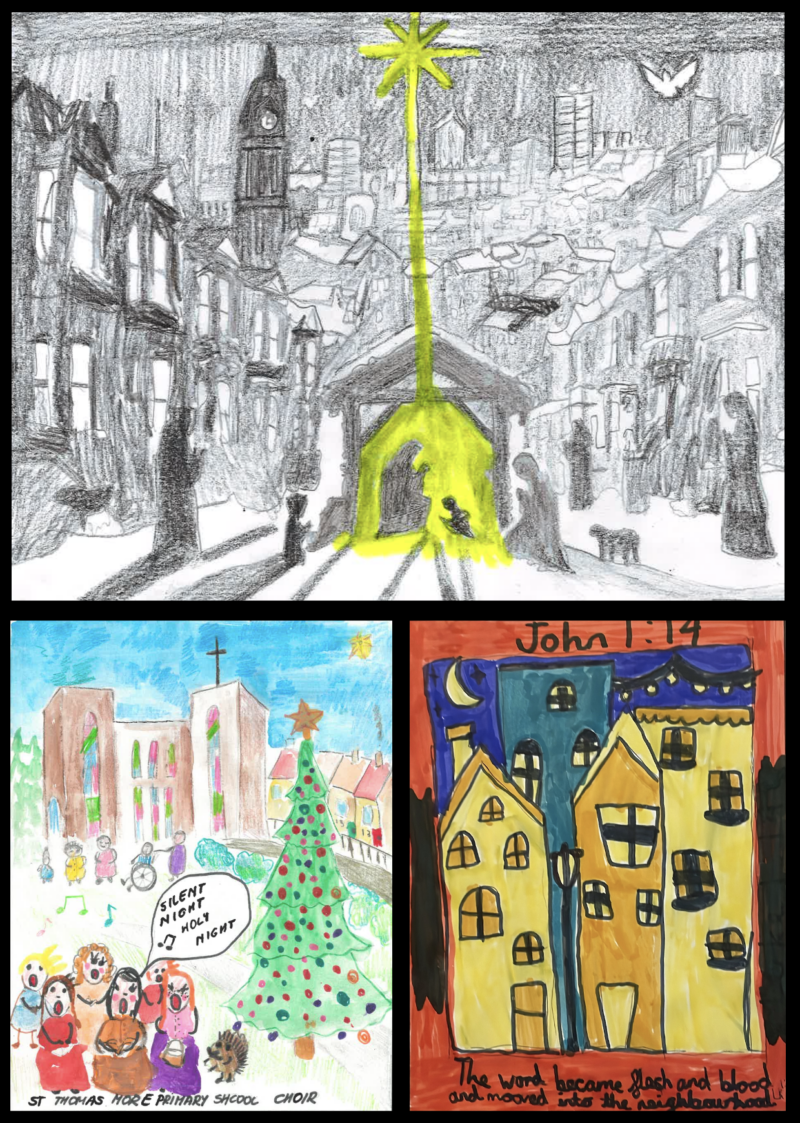
Now the Christmas break is upon us, we are able to stop for a moment and reflect. The past few weeks have been wonderful time for Common Good Schools. Most recently we have celebrated the winners of our community Christmas card competition, we have heard inspiring updates from a partner school in Liverpool, and we have made a video for our partners in Sweden.
We were delighted with the enthusiasm around our Community Christmas Card Competition. Entrants were invited to design a card with a relative or neighbour: working collaboratively was important to encourage the building of local relationships – a central feature of Common Good Schools. Entries were were shortlisted by artist Polly Shepherd and passed on to our judging panel who together made the final decision: Lucy Moore, Head of Growing Faith Foundation, Bishop Mike Royal, General Secretary, Churches Together in England, and The Most Rev John Wilson, Archbishop of Southwark.
Lucy Moore said: “Oh dear! A very tough call! They’re all fantastic, just in different ways. Please pass on huge congratulations to them all. I think Harry and Teddy’s is a powerful image, really striking use of colour and combines the warmth and apparent insignificance of the nativity scene with the stark architecture of where they live – it really speaks of a living baby coming into a dark world in utter vulnerability: very clever.”
The winners were Harry (9) and Teddy (5) (above, top) from St Mary’s Horsforth. The two runners-up were Julia (8) and her mum Izabella (above, below right) from St John the Baptist Primary in Normanton, and Lelia (7) and her mum Sarune (above, below left) from St Thomas More Primary in Eltham.
We were delighted to work with the Justice and Peace Commission in the Catholic Diocese of Stockholm to produce a video for teachers, educators and parents across Sweden. Working with Ludwig Gelot, I recorded a conversation with my colleague Jenny Sinclair about the effects of our prevailing culture on young people and how schools can contribute to rebuilding the common good. Ludwig plans to share the video across schools in Sweden – you can watch it below.
Finally we were delighted to hear of the latest community engagement activities at Alsop High School which has established a “My Community Matters” forum for students who meet weekly to consider ways to make their community a better place to learn, work and live. The students are following the Common Good Schools programme. Among their activities, students are working with a community artist to design and paint a mural to celebrate community life in North Liverpool, baking for the community and they have met with local heroes including Margaret Aspinall, founder of the Hillsborough Families Support Group.

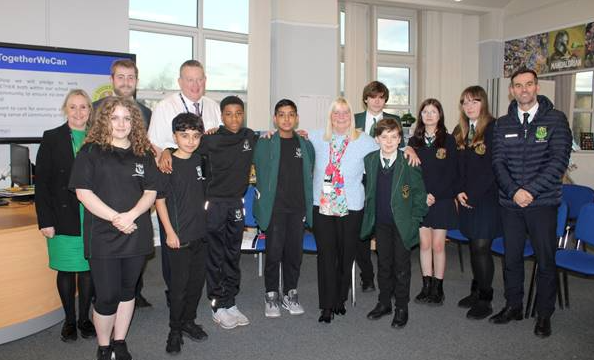
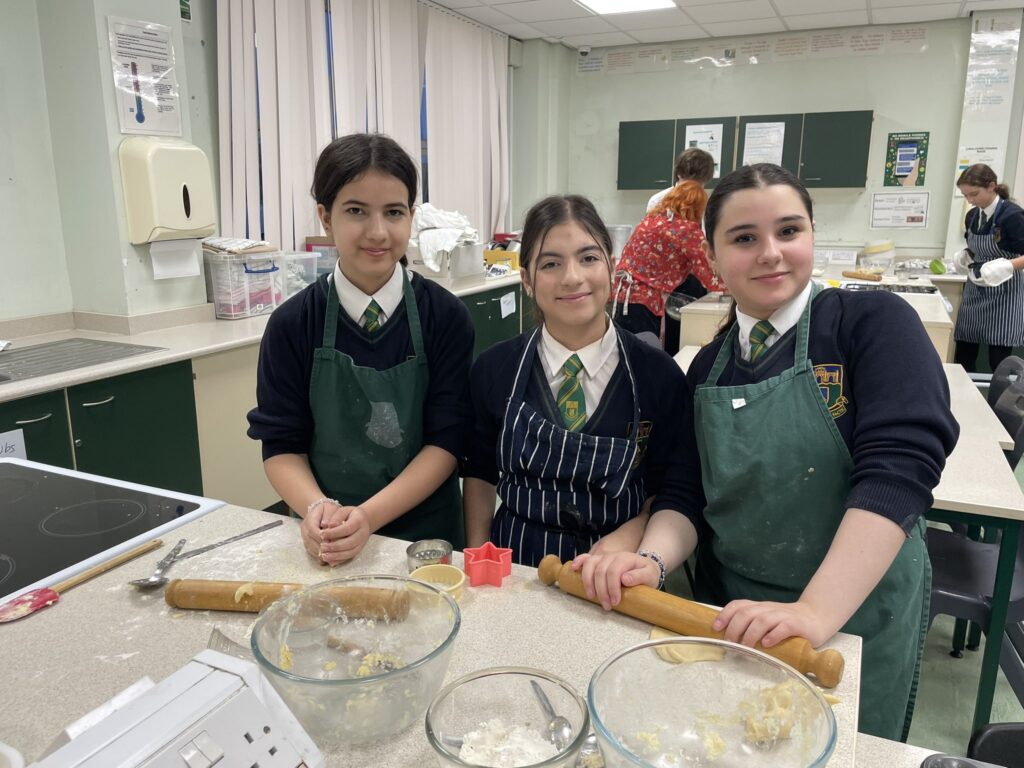
We hope you have enjoyed hearing our latest news. Please do consider sharing this article with your contacts especially headteachers, CEOs of Multi Academy Trusts, Diocesan Directors for Education and teaching colleagues.
Jo Stow
Common Good Schools Project Leader
To find out more about the 10-week Common Good Schools programme visit www.commongoodschools.co.uk or contact Jo Stow, Project Leader at: jo [at] commongoodschools [dot] co [dot] uk
***
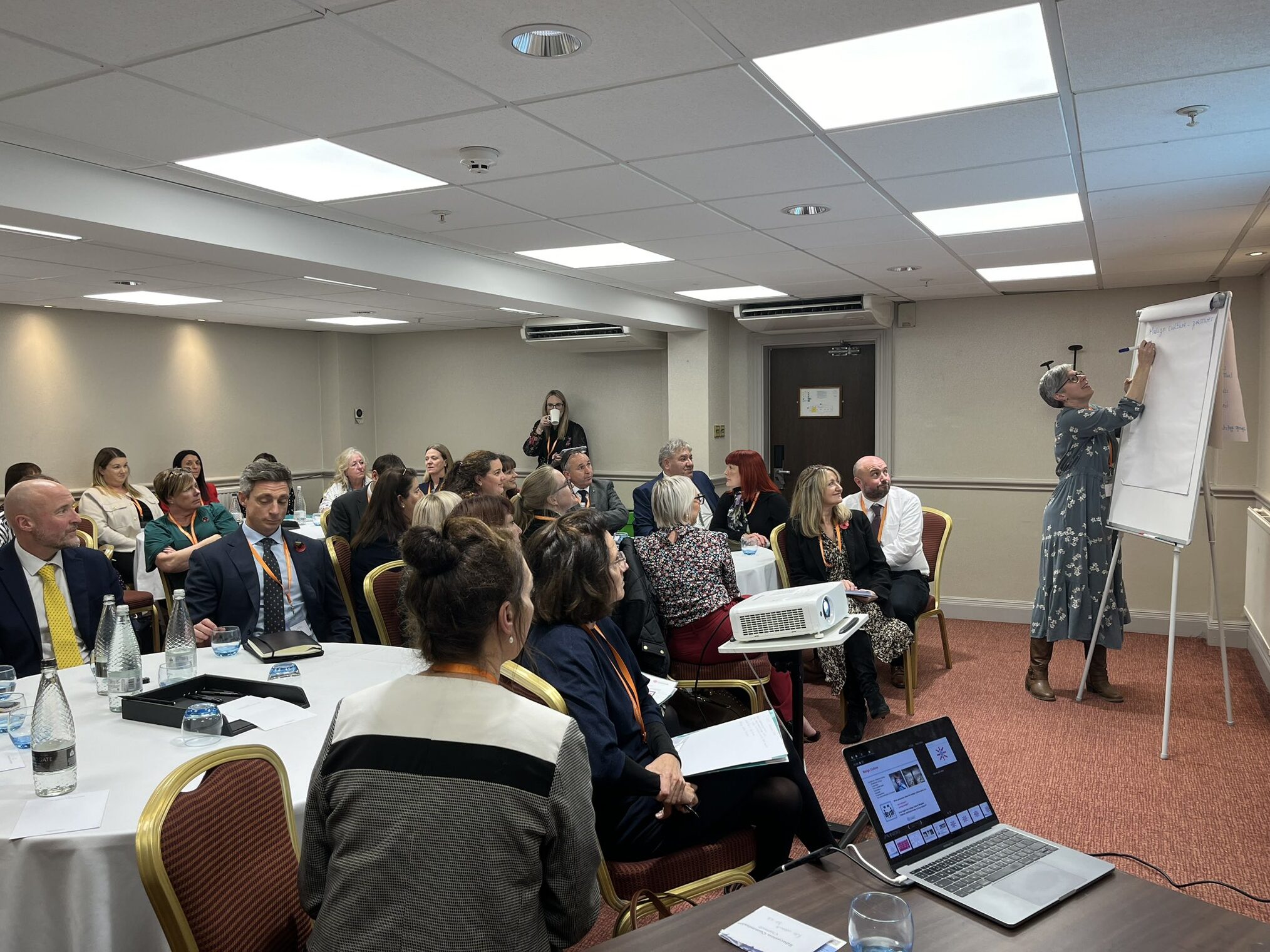
Our Project Leader, Jo Stow, provides our latest update.
Whilst the Church’s year is coming to a close, the academic year is in full swing. It has been wonderful to see three new partner schools and a partner diocese join the Common Good Schools programme and 100 percent of our existing schools re-subscribe to the programme.
Alsop High School, Liverpool
The work of Peter Bull, teacher and long time friend of T4CG, was the original inspiration for the Community Engagement component of the Common Good Schools programme. However, it is only now that the Common Good Schools lesson material is being used in his school, Alsop High – which is located in Walton, Liverpool, the most deprived constituency in England. We’re delighted how this partnership continues to flourish.
In October, Peter launched ‘Our Community Matters Forum’, a weekly after-school initiative to generate neighbourhood pride, form character and develop a ‘Network of Kindness’ to bring people together. Students participating in the Forum are following the Common Good Schools programme and according to Peter, “it’s really taking off!”
A number of local partnerships are being explored as part of the community engagement element of the programme. One plan already underway will see students working with community artist and former pupil Nicola Taggart: together they will design a large painted mural to depict and celebrate community life.
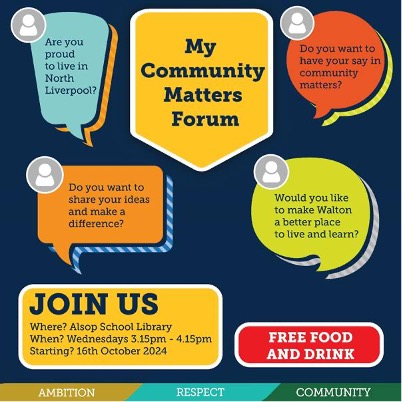
Archdiocese of Modena-Nonatula, Italy
It is also a great joy to be working with our first international partner, the Archdiocese of Modena-Nonantola, in Northern Italy. Led by another longstanding friend of T4CG, Franca Gambari, eleven young people involved in catechetical formation from across the diocese are meeting for monthly Common Good Schools sessions.
In their first session they explored the question ‘What is the Common Good?’ through songs, by engaging in Common Good Schools lesson interactive activities and by building relationships with peers and leaders. They are reflecting on the communities where they live, a theme which will be revisited throughout the year. An important way of building the common good is to meet people from the community who have a story to tell. In the second session, the group met with Antonia and Guido who shared their experiences as volunteer visitors and doctors in prisons.
The group plans to travel to the UK in the summer and meet with young people participating in the Common Good Schools programme in Liverpool, as well as enjoying the culture and history of the city.
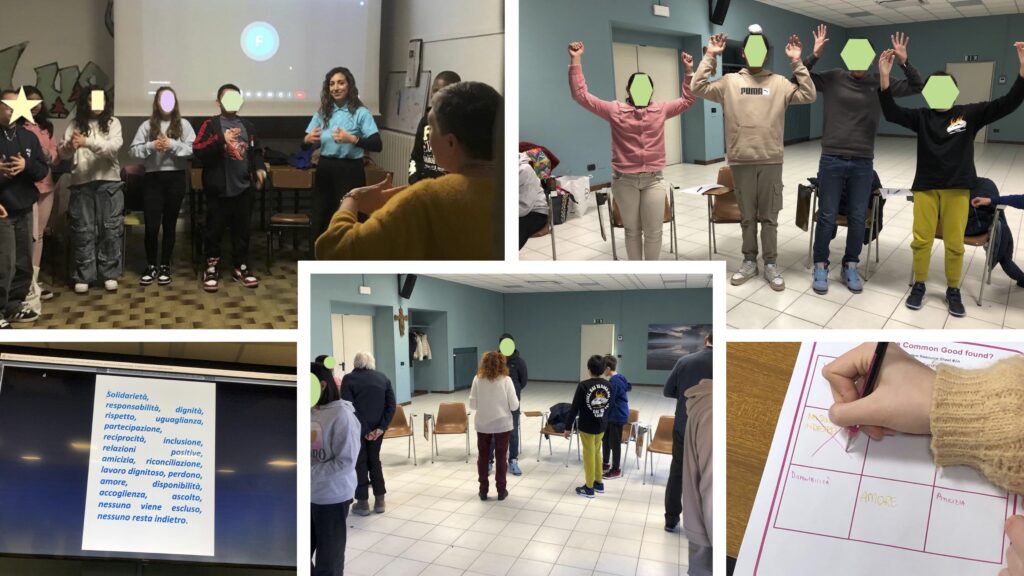
All Saints Multi-Academy Trust, Liverpool
Two of our newest partners, Hope Academy and St Francis of Assisi Academy, are secondary schools belonging to All Saints Multi Academy Trust.
The Academy of St Francis of Assisi has many students of different ethnicities, religions and cultures learning alongside each other. Miles Rimmer-Tagoe, the lay chaplain heading up Common Good Schools, is working closely with the RE Department to foster relationship building among students and with groups in the diverse community. A group of twenty Year 9 students are participating in Common Good Schools lessons each week. After Christmas, these students – known as Common Good Ambassadors – will lead Common Good Schools assemblies across the whole school community. Miles expressed his gratitude:
“Thanks so much for a resource that allows Muslim, Christian, and atheist students to feel excited about working together for the common good.”
Hope Academy chaplain Kasia Boydell is excited to see Year 9 students taking part and leading Common Good Schools lessons during her ‘Inspire’ sessions, which are part of the PSHE curriculum and take place during form time. Through the Common Good Schools lessons, her groups are inspired to make plans to engage with the local community.
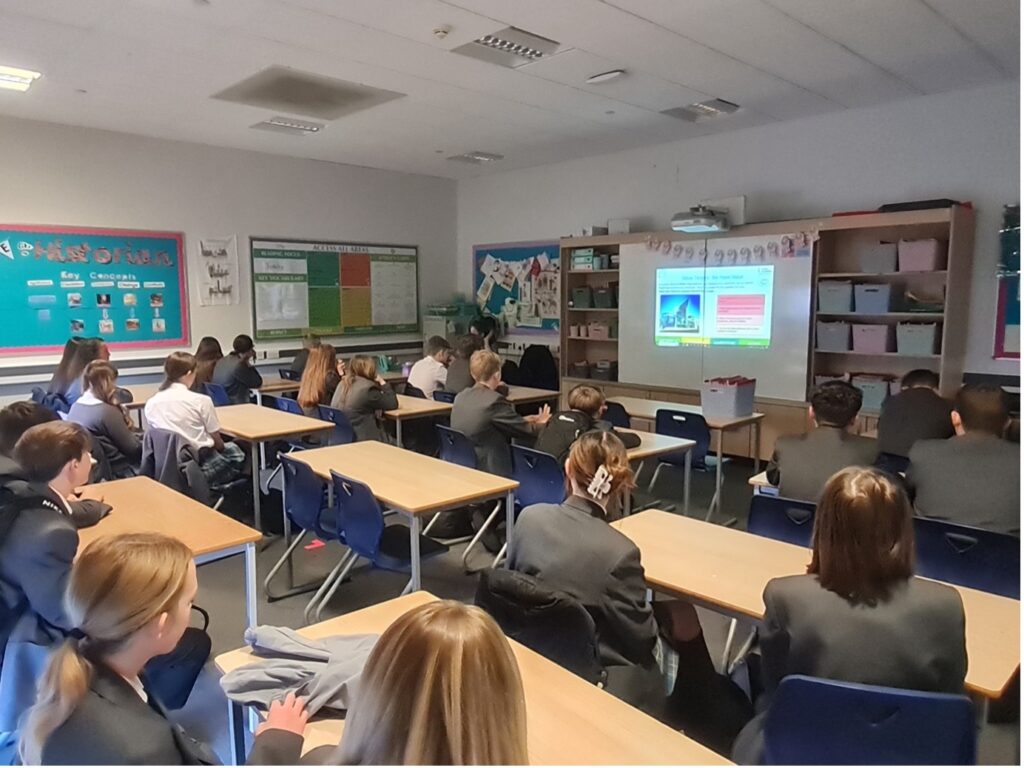
Spreading the word among head teachers
I was delighted to be invited to speak to headteachers and senior leaders from around the country at three recent events. I led a workshop at the Archdiocese of Southwark headteachers’ conference in Kent, and addressed senior leaders attending a day of reflection at Caritas Leeds. I also gave an introduction to Common Good Schools at the EducareM National School of Formation, where my colleague Jenny Sinclair was giving a keynote talk on reading the signs of the times and our calling for the common good.
Although each presentation has been different, what I’m hearing is that T4CG’s reading of the signs of the times resonates deeply with school leaders. They see in their students the symptoms of distress generated by what Pope Francis calls a ‘malign culture’. Every day teachers are dealing with the fallout and the challenges this culture of individualism and consumerism brings to their school community. But as well as our analysis, they are finding our hopeful message, that building the common good is the antidote, both inspiring and practical. I am delighted that this month 26 new school leaders have expressed an interest in Common Good Schools. We are excited to see more young people benefiting from the programme.
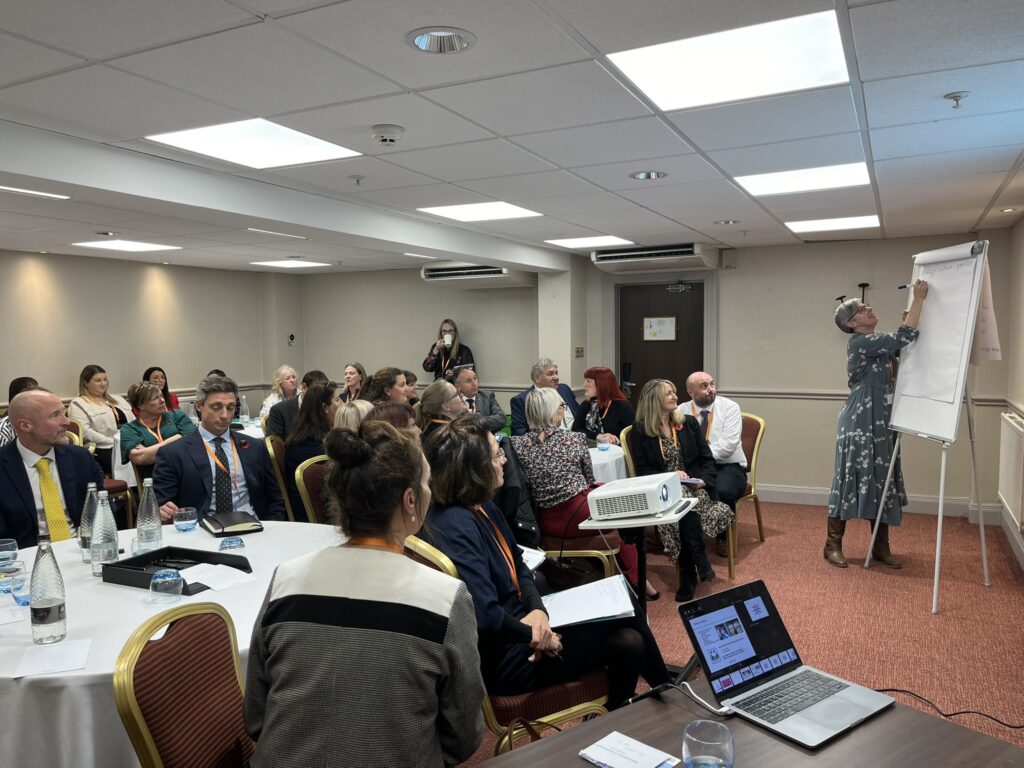
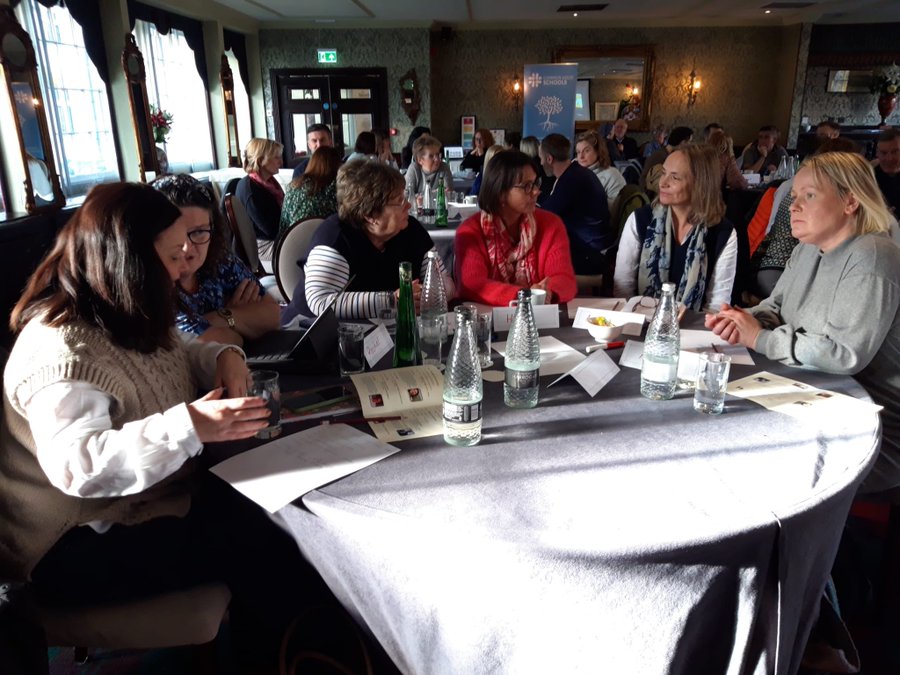
Finally, we published a free Advent Resource and launched a Community Christmas Card Competition. To download the resource and find out how to enter the competition, click here

Jo Stow
Common Good Schools Project Leader
Finally, please would you pray for
Do you have a link with your local school? Are you a parent, student, teacher, senior leader, director of an academy trust, trustee or governor? We find the best way to engage is via a personal introduction. For more details about the programme, please visit the Common Good Schools website where you can book a call with Jo Stow and download a free sample pack to try at your school.

In this time of uncertainty and fragmentation, there is a growing need to rebuild social trust and strengthen community spirit. Meanwhile, many schools will be looking for ideas for how to mark the season of Advent.
Common Good Schools is offering a free resource to help schools play their part.
Designed to equip children and young people to plan and initiate action that builds the common good in their local area, the resource is FREE TO DOWNLOAD and contains:
This resource is suitable for use in schools, chaplaincy, churches and small groups, with separate resources for both primary and secondary aged children.
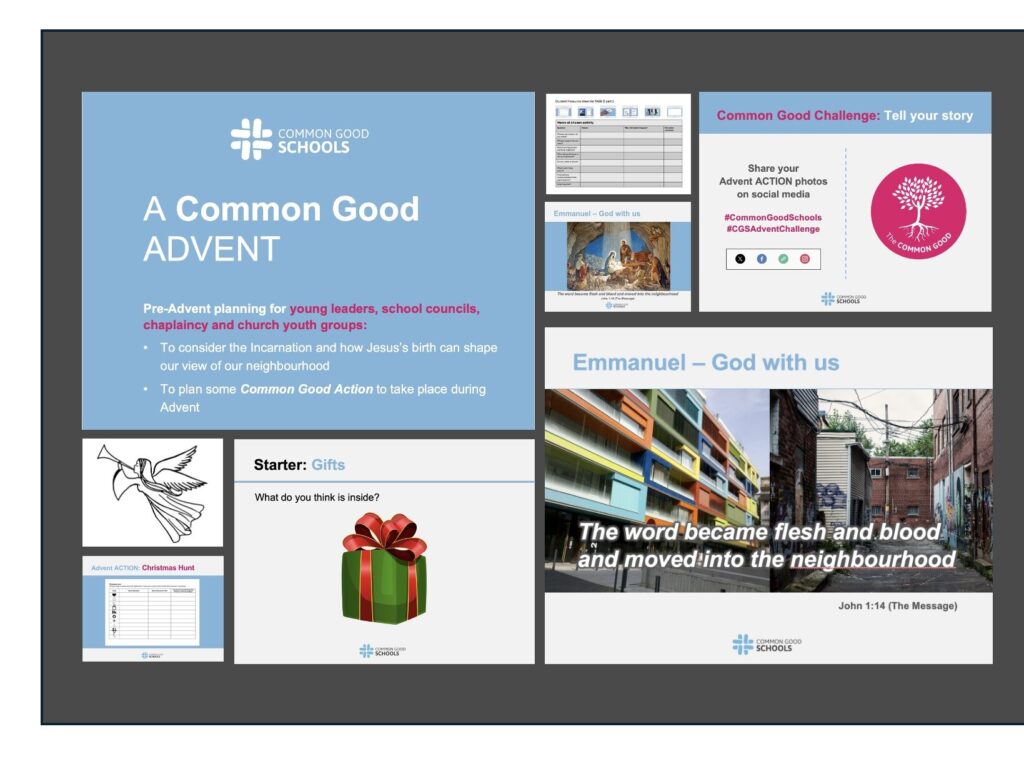
For your free download, visit www.commongoodschools.co.uk
Download Advent resource flier here
To find out more about the 10-week Common Good Schools programme contact Jo Stow, Project Leader at: jo [at] commongoodschools [dot] co [dot] uk
***
In the meantime please pray for the work of Common Good Schools, in particular:
Thank you!
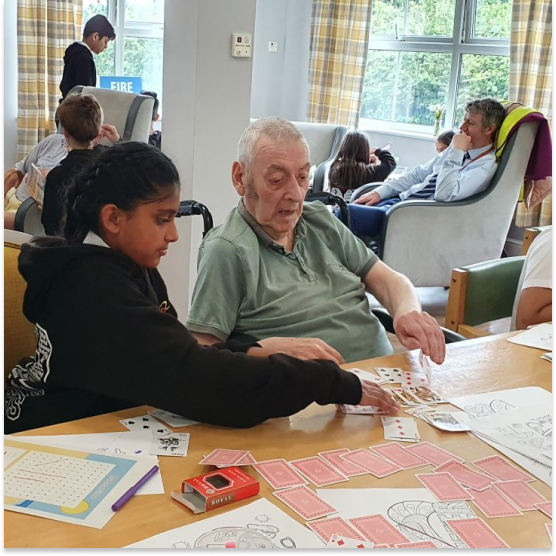
The Common Good is the lens through which we invite our partner schools to view their neighbourhood. A principle of Catholic Social Teaching, the Common Good teaches us what it is to be human and how we should relate to one another in love, especially the most vulnerable and poor. Fully understood and embraced, it marks us out as wonderfully different from the prevailing culture. It allows both staff and students to flourish and to explore their vocation.
In September 2023, brand new frameworks were brought in for Statutory Inspection of Anglican and Methodist Schools (SIAMS) and Catholic Schools Inspection (CSI) under section 48. SIAMS promotes the flourishing of staff and students whilst CSI looks for the flourishing of pupils pursuing the common good. It is striking that both frameworks promote an awareness of the context of a school in the local, the taking up of responsibility, acting according to a theologically rooted vision.
At Common Good Schools we offer a vision of Catholic Social Teaching through the lens of the Common Good. It is a gift from the Church to all, including our schools. Imagine then, a school working with others in its neighbourhood to build the common good. What might this look like? And is it different from what schools are already doing?
GOOD NEIGHBOURS
The Common Good, a principle of Catholic Social Teaching, is something that at first glance seems obvious.
In St Mark’s gospel, a teacher of the Law asks Jesus, “Which commandment is the most important of all?” “The most important one,” answered Jesus, “is this: ‘Hear, O Israel: The Lord our God, the Lord is one. Love the Lord your God with all your heart and with all your soul and with all your mind and with all your strength.’ The second is this: ‘Love your neighbour as yourself.’ There is no commandment greater than these.” (Mark 12: 28-31)
The actions of students and staff are authentically Christian when love of neighbour flows from love of God. The life and mission of a school is rooted in love.
In initial conversations with schools about the Common Good, staff often tell me of the charities or campaigns they support. At Common Good Schools, we want to propose something more radical. Our ten-week programme gives students an opportunity for an in-person, hands on experience of being a good neighbour. Lessons and assemblies develop the knowledge, understanding and skills they’ll need. They will hear stories of neighbours building relationships and working together, challenging injustice and creating a place where people can flourish. But it’s in the community engagement activities that learning really comes alive. In this way, we hope to form young people to live their lives as good neighbours for years to come.
WHO IS MY NEIGHBOUR?
In the parable of the Good Samaritan, the person on the road, attacked and abandoned, is clearly in dire need of help. But what sort of help is best? Have you ever noticed that the Good Samaritan spends a significant amount of time with the injured man? He doesn’t simply patch him up and pay for his care. He stays overnight. This is not a faceless handout or donation – it is a relationship. His accompaniment counteracts the man’s abandonment. It is the relationship that makes him a good neighbour.
Abandonment is the experience for many within our society’s individualistic culture today. People have become separated from one another, making them vulnerable. This is what Pope Francis calls a ‘malign’ culture, in which, he says, the young are especially vulnerable.
The ironically named “social” media has been a major contributory factor in the atrophy of “real life” relational ability among the young. Professor Jonathan Haidt’s research shows significant increases in anxiety and depression among young people aged 11 – 15 alongside the change from “flip phones” to smartphones.
In The Campaign to End Loneliness, Robin Hewings commented after analysing the Office for National Statistics (ONS) figures that “younger people are at higher risk of loneliness.” The government’s Tackling Loneliness evidence review showed loneliness is highest for people who are 16-24 years old: young people are lonelier than the elderly.
The symptoms can be seen all too well in our schools. Poor mental health, high levels of anxiety along with problematic behaviour and poor attendance. Distressed young people can have a negative impact on the staff who teach and support them, contributing to a crisis of retention and recruitment. It turns out that our young people have as much need for a neighbour, as those they are encouraged to serve.
Building durable relationships with our neighbours over the road helps us to develop our neighbourliness. In cultivating reciprocal relationships, students benefit from the opportunity to “gladly embrace their personal responsibility to care for our Common Home, pursue the common good and serve those in need”. (Catholic Schools Inspection Framework)
TAKING ACTION
At Cardinal Heenan Catholic High School in Leeds, staff and students have spent the last academic year establishing and developing relationships with their close neighbours. Lead teacher Krystina Gold reached out to Penny Field School for children with complex needs and Brandon House Care Home, both situated nearby. Both responded positively and after initial meetings, weekly lunchtime visits commenced. Vibrant and mutually beneficial partnerships have emerged.
It was during a noisy Makaton ‘Sing and Sign’ session that pupils from schools first got together. Krystina had a clear idea of how the children from the two schools should relate: “I didn’t want the interaction to be power-based, in the sense that Cardinal Heenan pupils would only be helping Penny Fields students. I wanted the pupils to have an equal relationship, learning together.”
Jo Steele at Penny Field School wrote to Krystina expressing her delight at the success of the visits saying, “It’s wonderful for our pupils to gain interactions with mainstream peers and it has a significant impact on their lives. These interactions may not seem huge to your pupils, but they really do make a big difference to our pupils and we cannot thank them enough!”
RECIPROCITY
A mark of the common good is reciprocal relationships. Have you observed this in the gospels? Whenever Jesus encounters someone who needs his help, he also invites something from them. His affirming words, “your faith has made you well.” And, in Matthew 13:58, “And he did not do many deeds of power there, because of their unbelief,” show that Jesus does not impose his power, nor is he reduced to a blessing provider. Without the contribution of the person in need, his power is minimised or ineffective. Jesus’s way is to give agency, share responsibility, and welcome participation. This gives the recipient the grace to fulfil their humanity.
This is echoed in the mission of the 72. Jesus instructs them not to take a bag, money, or a change of clothes. The disciples rely on the hospitality of those to whom they are sent. Perhaps, the leaving behind of belongings also refers to letting go of our assumptions about what a group of people might need from us. Jesus’s mission requires mutuality.
Whilst it is not possible to build relationships with everyone, it is possible with our neighbours just across the road or with a local group with a mutual interest. When school staff take a lead, in line with their safeguarding policy, young people can gain the confidence to build safe relationships. Volunteering or fundraising for a project might be a step in the right direction but is often more about doing good rather than reciprocity. And that’s what make the Common Good Schools programme more radical.
AN INVITATION
We’re inviting church schools to lead the way in a prophetic rejection of individualism, to learn about Common Good Thinking and to adopt a beautiful posture of reciprocity with neighbours within their catchment area. This invitation offers members of the school the opportunity to take responsibility, according to their calling and ability and alongside their neighbours, for the flourishing of everyone.
It has been encouraging to witness the progress of our partner schools, both Church of England and Catholic.
Year 9 students at Worth School in West Sussex are taking part in Common Good Schools. Teacher Chris Wyles commented that the programme has sparked a significant increase in students volunteering to serve: “Common Good Schools has made a space for our students to be more virtuous and not feel shy about it. Their learning over 10 lessons has got them motivated to build the common good wherever they can.”
Cardinal Heenan students discovered that solidarity with their neighbours can be expressed weekly and in person. A student involved in visits to Brandon House Care Home said, “I have gained more empathy and understanding of the effects of dementia.” And a student visiting Penny Field School said, “I’ve learnt about different types of learning with people who have special needs, its [sic] helped me learn how it may be difficult for them and ive [sic] enjoyed learning Makaton.”
All Saints Multi Academy Trust, a joint Catholic and Church of England trust is our newest UK partner. The lay chaplain at one of their schools acknowledged the timeliness of the Common Good Schools programme. His plans for the programme include forging long term relationships in the community and integrating Common Good thinking into collective worship and form time. He aims to build a broad range of connections in the neighbourhood including with the local mosque, which some of his students attend and which was a focus for some of the rioting over the summer.
PERSONAL DEVELOPMENT FOR THE COMMON GOOD
The enjoyment of in-person connections, vital for good mental health, is a striking contrast to interactions via TikTok, Snapchat and the like. With algorithms that drive division and facilitate cyber bullying, school staff are burdened with conflict resolution and disciplinary issues. How else might this ‘malign’ culture that Pope Francis warns about influence school life? And how can Catholic Social Teaching build our capacity to respond?
St John Bosco College in Battersea have adopted the Common Good Schools programme as part of their personal development curriculum. Approximately 825 children from Year 7 to –Year 11 are learning about Common Good Thinking in vertical tutor groups.
In Hampshire, Oaklands Sixth Form College students use tutor time to do the same. Common Good thinking is distinctively different from the prevailing ‘me-culture’, with its focus on self. Rather, personal development informed by the Common Good values the knowledge, skills and talents of each student for the benefit of mutual flourishing.
Bishop Ramsey CE School in Middlesex have introduced the Common Good to Year 8 students in PSHE lessons. Deputy Head, Malcolm Britten says that the programme’s lessons, assemblies and community engagement activities have given them a framework to link school activities and their current community partnerships, enabling a deepening of their local commitment to the common good.
STUDENT LEADERSHIP AND SUBSIDIARITY
At Cardinal Heenan, a group of students were invited to be Common Good Leaders. They spread the word among their peers about the opportunity to visit their neighbours. Krystina reports that, “[Being a Common Good Leader] provides the pupils with the opportunity to develop skills that are useful to real life and the workplace: persuading people, organising and communicating effectively. It gives them a clear role and clear leadership abilities.”
This is an example of the Catholic social teaching principle of subsidiarity in practice: responsibility is taken at the most appropriate level and decisions are taken closest to where they will have their effect. Young leaders, with the knowledge of their classmates’ strengths and talents, and the needs of community partners, can invite peers to participate meaningfully.
IT STARTS WITH RELATIONSHIPS
Working with neighbours across difference is possible! Forging ongoing mutual relationships, especially between the young and the elderly, can build bridges and overcome isolation and loneliness.
These are just some of many ways to build a common good. Our partner schools are leading the way. If we always start with the aim of fundraising or campaigning, we miss out on so much. The principles of human dignity, solidarity and subsidiarity are fully expressed in the context of reciprocal relationships and give opportunity for a wealth of mutual benefits. This is why a focus on building the Common Good is more radical. Imagine what your school’s students and your neighbours could build together.
Common Good Schools alone won’t bring that full vision into reality, but it will equip and form young people and teachers to get started.
“Just as I have loved you, you should also love one another. By this, everyone will know that you are my disciples, if you have love for one another.” (John 13:35)
Jo Stow
Project Leader, Common Good Schools
To try our free resources: visit commongoodschools.co.uk
For more information: contact Jo Stow at jo [@]commongoodschools [dot] co [dot]uk
A version of this article was first published in Networking – Catholic Education Today in September 2024.
